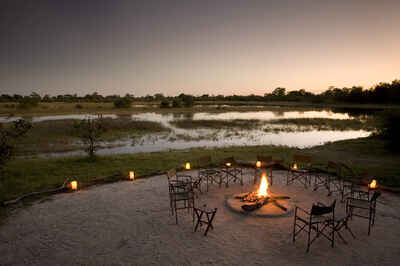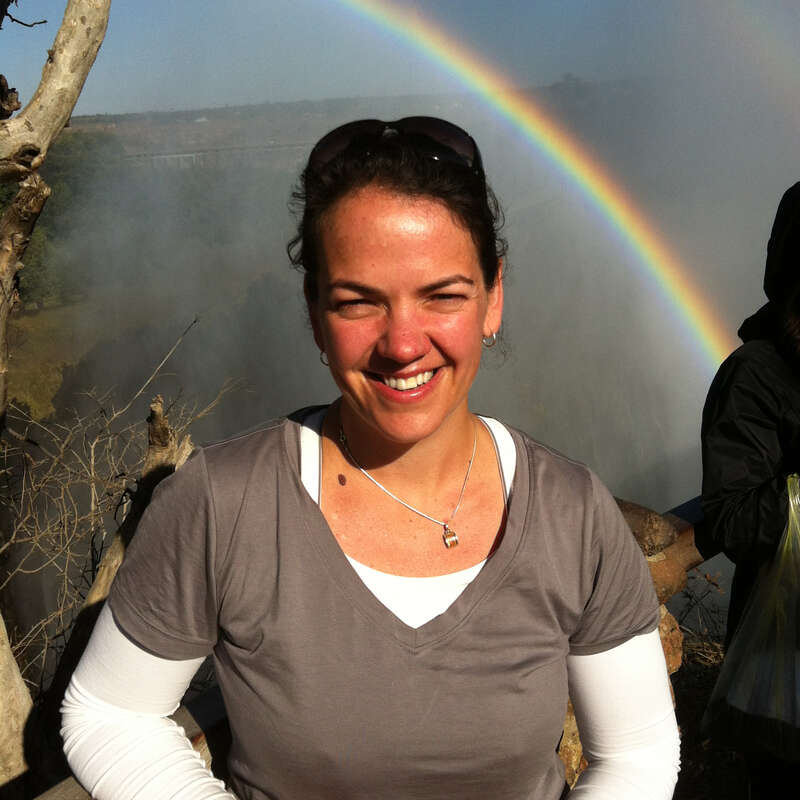About Okavango Explorers Camp
Shade by silvery-green leadwood trees, beside the remote Selinda Spillway, stand the timeless tents of the Okavango Explorers Camp.
On the site of the old Motswiri Camp, this new camp remains a classic, tented safari camp on the surface, but plush rugs, comfortable beds and plenty of creature comforts make this a super safari spot for anyone who wants to get out on foot on their trip.
The landscape in this far western corner of Botswana's private Selinda Reserve varies from woodland to open floodplains; it feels part of the Okavango Delta system. The Selinda Spillway (sometimes known as the Magwegqana Spillway) is an ancient watercourse linking the Okavango Delta to the Kwando-Linyanti River drainage system, and though for many decades the Spillway seldom flowed, since a particularly good rainy season in 2008, when water entered the Spillway from both ends, it has filled annually. With water, of course, comes wildlife.
Wildlife sightings have increased steadily in this area over the years with wild dogs and big cats known to hunt here, and large herds of elephants congregating in the dry season.
Game drives are always available here, but for us at Expert Africa, one of the camp's biggest draw cards is the opportunity to get out on foot and do some fantastic walking led by experienced safari guides.
Our view
Okavango Explorers Camp is a great choice for a traditional tented camp experience, and its location beside the Selinda Spillway is lovely. It is very comfortable, feels very remote and its focus on walking safaris and canoeing trips makes it different to most other places in the Delta. Thus it will work really well for those who want to be active, as well as enjoying the occasional promising game drive from a vehicle.
Accommodation
6 safari tents
Children
Best for 12+
Open
All year
Activities

4WD Safari

Birdwatching

Canoeing

Fishing

Guided walking safari

Helicopter

Night drive

Private activities
Traveller reviews of Okavango Explorers Camp
3 real, un-edited reviews from Expert Africa's travellers.
Arrived 31 Oct 2024, 3 nights
"Okavango Explorers Camp review"
Overall rating: Excellent
Arrived 24 May 2024, 4 nights
"Okavango Explorers Camp review"
Overall rating: Excellent
Arrived 29 Nov 2023, 3 nights
"Okavango Explorers Camp review"
Overall rating: Good
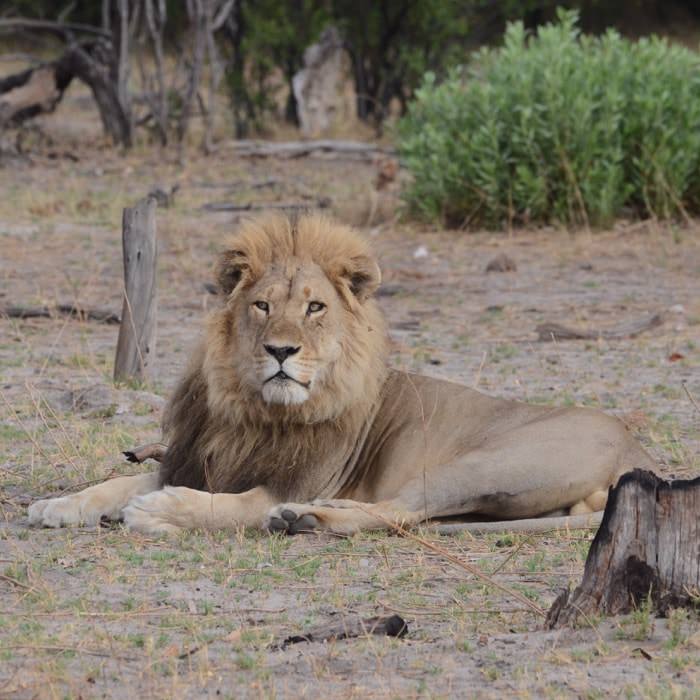
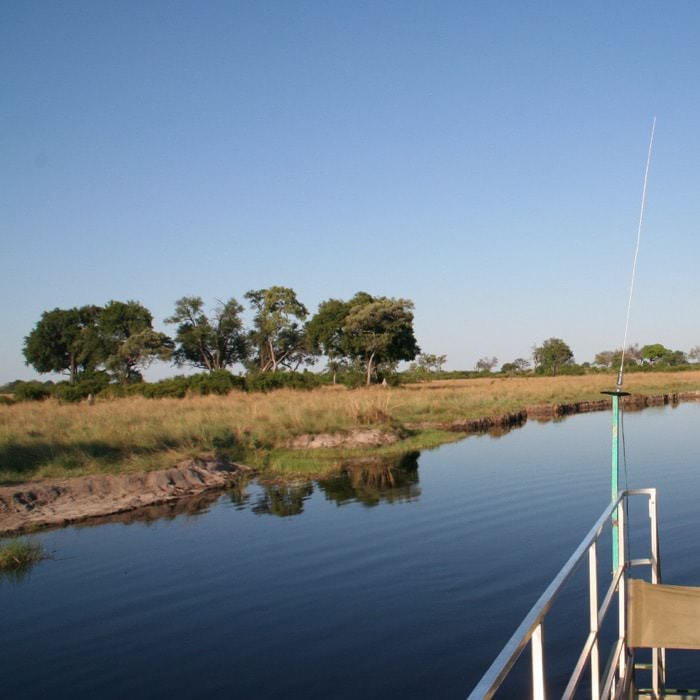
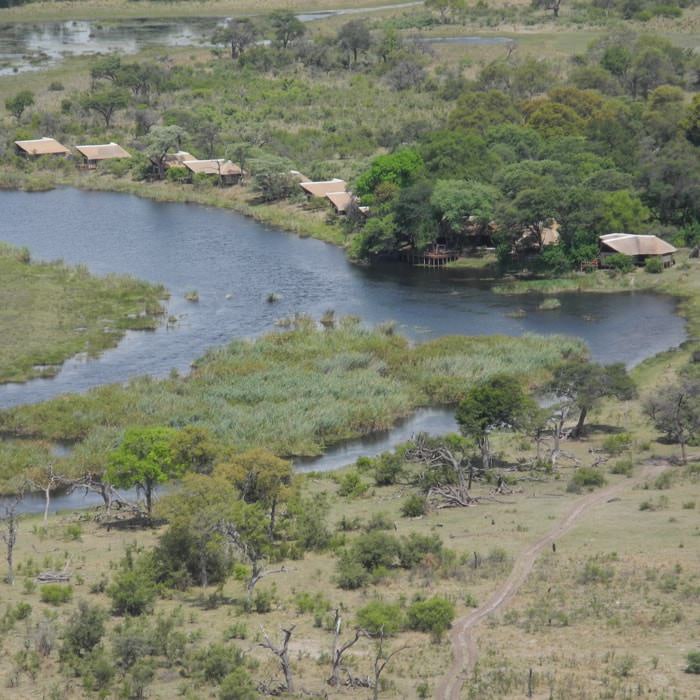
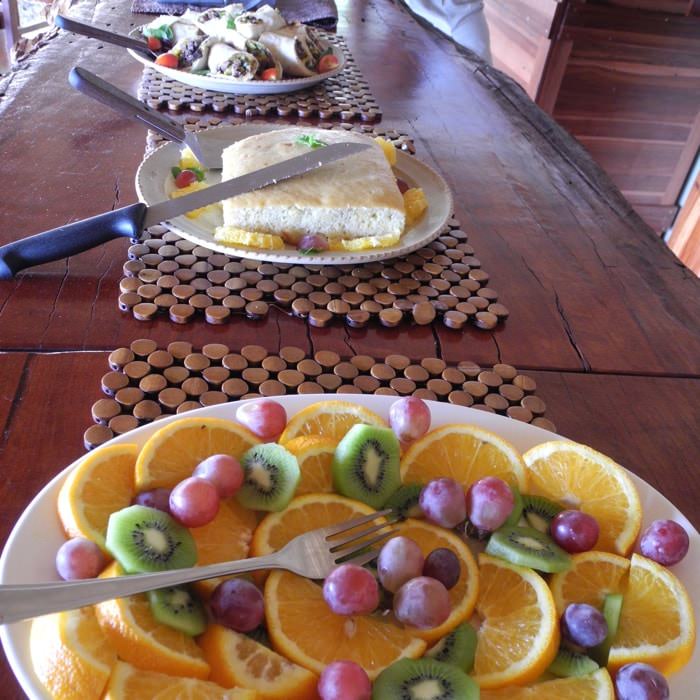
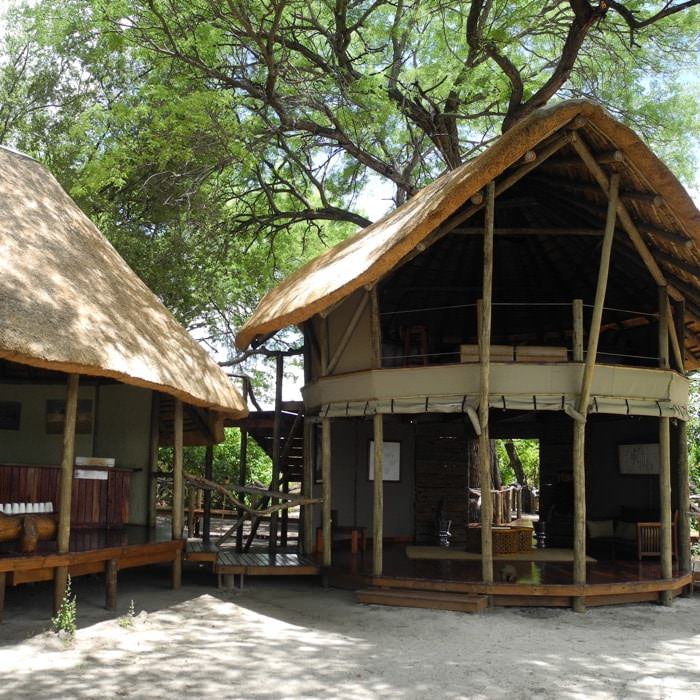
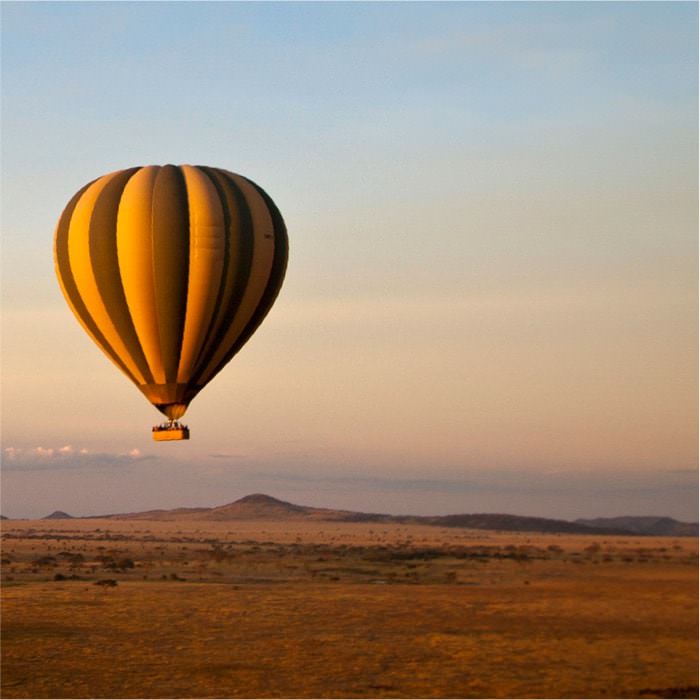
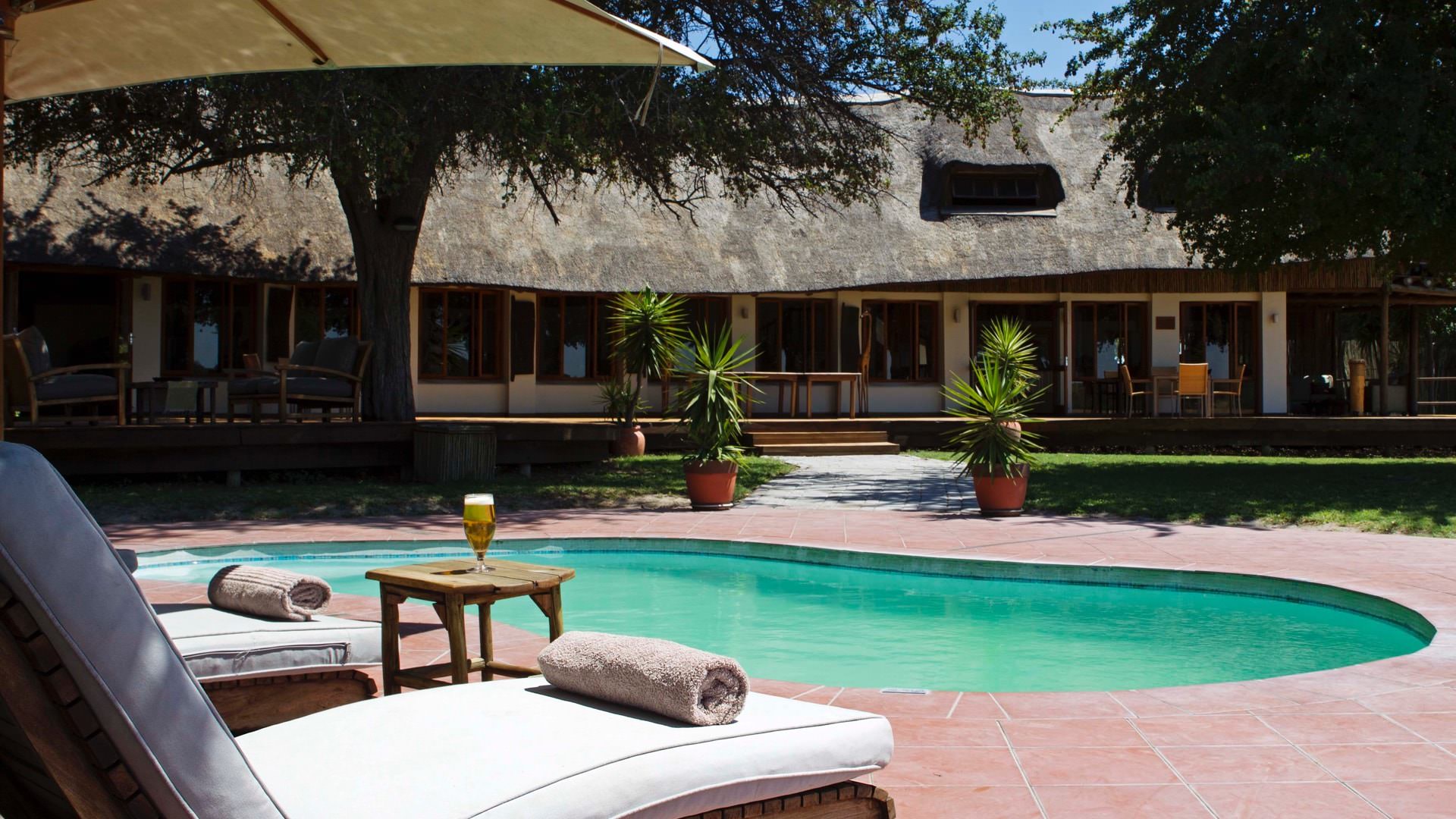
Expert Africa's gallery
When we travel we take lots of photos ourselves to give you a real and un-edited view of the safaris. See our 12 pictures of Okavango Explorers to get the candid view.
View galleryOkavango Explorers Camp: Our full report
On the banks of the Selinda Spillway, Okavango Explorers Camp opened in July 2022, and is the most recent ...
... addition to the Great Plains’ Explorers group of camps. Located on the western side of the private 1,350km² Selinda Reserve, it’s a classic safari camp in style, albeit a relatively luxurious one, and permanently sited.
Envisaged as a stylish, early explorer tented camp, it’s a relaxed, unpretentious camp run by an experienced team. It is certainly more modest in scope than its sister camp, Selinda Camp, and much more basic than the opulent Zarafa Camp, which are both on the same reserve, but it is nonetheless a great spot. With large, open tents revealing dark-wood furniture, crisp white bed linen and rich, soft furnishings from Zanzibar, the details in the décor create a decadent feel – exactly what we would expect from the owners. It is a good option for those seeking a wilderness experience in a traditional tented camp, but still with high expectations of quality. It is worth noting that Okavango Explorers is located on the far western side of the Selinda Concession, away from the Kwando and Linyanti Rivers. As such, we feel it offers an Okavango experience in contrast to the other camps in this concession.
The main area of Okavango Explorers is an open-sided tent. In one is a communal dining table and bar; in the other, a comfortable lounge. The mix of dark wood, campaign furniture and Arabian rugs gives a distinctly explorer feel, and makes for a lovely, social hub in this small camp. Meals are taken either in the dining area, under the stars or occasionally, surrounded by lanterns with your feet in the clear water.
With just six Meru-style tents, Okavango Explorers remains a very intimate camp. The tents are spacious, and all can be made up as doubles or twins. The beds are very comfortable, with high-quality cotton sheets and some of the biggest and softest pillows we have come across. An antique- style fan stands in the corner, along with a writing desk that blends in with the campaign-style furniture in the rest of the room and some attractive storage trunks. Drinking water and mosquito spray are provided, and electric lighting comes courtesy of solar power. Outside some of the tents, directors’ chairs provide the perfect spot for morning coffee or holiday reading.
The canvas-walled open-air bathroom at the back of each tent has a flush toilet and a 200-litre bucket shower; with more than enough water, and hot water brought in the mornings and evenings, it is as good as any hotel shower!
Activities at Okavango Explorers Camp include both day and night game drives, but there is also a strong focus here is on walking and canoeing (water levels permitting). Walking is best between the end of May and October, when there is good visability in the bush as the grasses have died back. Canoeing takes place on the seasonally flooded Selinda Spillway, usually between May and September, when water levels are sufficiently high.
Over the years, animal densities have greatly improved in this area. We’ve seen good populations of the region's common game species: zebra, impala, and giraffe, as well as elephant and buffalo. We also had some great sightings of some rarer species such as the roan antelope. A past highlight in the exact location of this camp was witnessing two wild dog kills in as many days.
So whilst the game here still doesn't rival the densities found in Mombo, Moremi, or the camps beside the Kwando River further east, you’ll still find plenty of varied sightings for a good safari. And for us at Expert Africa, and for most of our travellers, one of the camp's great attractions is the opportunity to get out on foot and do some fantastic walking led by experienced walking guides.
A morning spent walking through the woodland on the edge of the Spillway is delightful. It’s an opportunity to learn about the smaller and less conspicuous flora and fauna with attentive, knowledgeable guides. It’s always wonderful to learn how the guides unravel the multitude of tracks– aardvark, porcupine, hyena, and lion to mention a few – and to learn about the traditional medicinal values of the plants.
When the Selinda Spillway is flowing it is possible to do canoe trips, from camp as well as a spot of fishing. However, later on in the dry season, typically from September, water levels drop and water activities are then suspended.
Geographics
- Location
- Okavango Delta Safari Reserves, Botswana
- Ideal length of stay
- Three or four nights at Okavango Explorers works well. The activities focus on walking and canoeing (water levels permitting) in the Selinda Reserve, so a stay here combines very well with time at Selinda Camp, or Zarafa Camp, in the same reserve – both of which put more emphasis on 4WD safaris – or Duba Explorers Camp, in a wonderfully watery area of the Okavango Delta.
- Directions
- Okavango Explorers Camp is accessed by light aircraft from either Kasane (50-minute flight) or Maun (45-minute flight), depending on where you stop along the way; it is then a drive from the airstrip to the camp, depending on what you see en route.
- Accessible by
- Fly-and-Transfer
Food & drink
- Usual board basis
- Full Board & Activities
- Food quality
- As a new camp in the Okavango Delta (Open June 2022), we have not yet had a chance to sample the food and drink but we would expect the food to be much like the meals at sister camps, Selinda and Zarafa: light, healthy and delicious.
The camp can cater for most dietary requirements as long as they are informed in advance.
One of the advantages of staying at Great Plains' camps is that the chefs have complete freedom to create their own menus. As a result, you can stay at different Great Plains' camps for over a week, yet not repeat a meal. Meals will likely be:
Breakfast included a choice of muesli, toast with a selection of jams, cheese, yoghurt, scones and fresh fruit along with tea/coffee/smoothie. Alternatively, breakfast can be packed for you to savour on a break during your morning activity
Brunch is served on your return from the morning activity. In sister camps we enjoyed delicious choice of lamb burgers, roast butternut and feta salad, quinoa salad with avocado, a big green salad, fresh bread rolls, a cheese platter and fresh fruit.
Afternoon tea, before the afternoon activity, includes both savoury and sweet snacks.
Dinner is served shortly after your return to camp in the evening, often served under the stars with the camp manager and guide. - Dining style
- Group Meals
- Dining locations
- Indoor and Outdoor Dining
- Drinks included
- All drinks that are stocked in camp, including premium brand spirits and sparkling wine.
Guests are given a water bottle that is filled up for them before activities etc. Bottled water is available on request.
Special interests
- Family holidays
- Children aged 10 and over are welcome on safari with special activities organised through the ‘Young Explorers’ club, and the camp is small enough to be taken over in its entirety by a family of 10-12 for a completely private family safari.
- See ideas for Family holidays in Botswana
- Birdwatching
- Located on the banks of the seasonal Selinda Spillway the camp offers a great mix of waterbirds and woodland species, with plenty of raptors always around in this very wild area.
- See ideas for Birdwatching in Botswana
- Walking safaris
- Okavango Explorers is a small, tented camp in a great area for wildlife and birds, which offers reliably good walking safaris at a relaxed pace with good guides. It’s one of Botswana’s better camps for walking safaris.
- See ideas for Walking safaris in Botswana
- Wildlife safaris
- Located in a good game area that’s exceedingly wild, with wild dogs and other large predators known to hunt in the area and elephants congregating in large numbers during the dry season.
- See ideas for Wildlife safaris in Botswana
Children
- Attitude towards children
- Children aged ten years and older are welcomed by Okavango Explorers Camp.
- Property’s age restrictions
- Minimum age 10 years.
- Special activities & services
- Okavango Explorers Camp has guides who are great with children and can offer alternative and slightly tailored activities such as fishing or short canoe trips. The camp also offers the 'Young Explorers' programme, which includes child-friendly activities such as animal tracking, plaster casting tracks, and making traditional bows and arrows.
They can offer child-minding from one of their housekeeping team, but not someone specially trained in childcare. - Generally recommended for children
- Yes – but it's really best for older children who are also sensible and careful, ideally at least 12 years old. This is primarily due to Okavango Explorer's focus on walking, which is a much more adult activity.
- Notes
- Children will need to be be supervised at all times by their parents/guardians, as predators wander freely through camp, which is also surrounded by water. This is a genuinely wild and remote area.
Our travellers’ wildlife sightings from Okavango Explorers
Since mid-2018, many of our travellers who stayed at Okavango Explorers Camp have kindly recorded their wildlife sightings and shared them with us. The results are below. Click an animal to see more, and here to see more on our methodology.

100% success

100% success

100% success

100% success

100% success

100% success

100% success

100% success

100% success

100% success

67% success

67% success

50% success

0% success

0% success

0% success
Communications
- Power supply notes
- Each tent has an individual solar panel to power lights. However. there is also a small generator used as a battery-charging station in the main area.
- Communications
- There is no cellphone reception or internet, but a satellite phone and radio are in place for emergencies only.
- TV & radio
- None
- Water supply
- Borehole
- Water supply notes
- Okavango Explorers has a ‘reverse osmosis’ machine for filtering drinking water from the borehole. Guests are given a water bottle that is filled up for them before activities etc. Bottled water is available on request.
Health & safety
- Malarial protection recommended
- Yes
- Medical care
- Senior staff and guides have medical first-aid training. The nearest medical facility is in Maun and the camp has links to a flying- doctor service.
- Dangerous animals
- High Risk
- Fire safety
- There are fire extinguishers in each tent.
Activities
4WD Safari
Birdwatching
Canoeing
Fishing
Guided walking safari
Helicopter
Night drive
Private activities
Extras
- Disabled access
- Not Possible
- Laundry facilities
- Okavango Explorers does not have a laundry service. Washing powder is provided in the tents for items to be hand washed.
- Money
- There is no currency exchange here. There are safes in the tents for small valuables.
- Accepted payment on location
- If you wish to tip, which is optional, then bring cash with you. Cash is accepted in any major currency and the camp has an old-fashioned swipe card machine for Visa and MasterCard, but not Amex.
Plan and book your trip with Expert Africa
All of our trips are tailor-made, so we'll always adapt them to suit you. Talk to an Expert and let us plan and arrange your perfect trip.

Talk to an Expert
Call or email us now! We’ll match you with the Specialist in our team who is best suited to help you. Then together we can start planning your trip.

Set up your itinerary
Based on our experience and your ideas, your specialist will create a detailed, costed itinerary. We’ll refine it together, until we have a trip that you’re perfectly happy with.

Prepare for your trip
The same Specialist will make the seamless arrangements for your trip, send you detailed travel documents, and be available to answer any questions before you depart.

Travel with peace of mind
After you set off, you’ll be cared for by our partners in Africa, most of whom have worked with Expert Africa for decades. And if you ever need us urgently, we’re available 24/7.

When you return
We love to learn about your trip, and so will always be grateful if you’ve the time to give feedback to your Specialist when you return.
Google map of Okavango Explorers Camp's location
Look closer at the environment and surroundings of Okavango Explorers - as the ancient Selinda Spillway links the Okavango and Kwando-Linyanti water systems.
Excursions from Okavango Explorers
Optional extra day-trips and excursions possible whilst you're staying at Okavango Explorers. Talk to us: these are usually best arranged before you go.
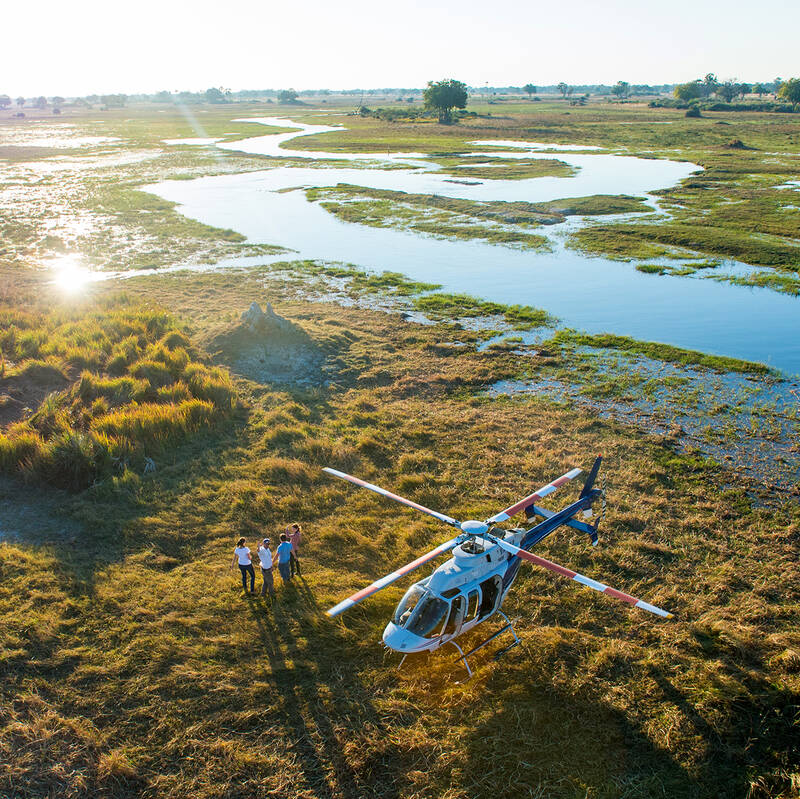
Helicopter Flight - Botswana
Various: from 30 minutes to half a day.
Low-flying, agile and offering superb views, helicopters are an ideal way to move around the Okavango Delta.You can use them instead of fixed-wing inter-lodge transfers or as an addition to other wildlife watching activities, and of course, helicopters can hover to allow that perfect pic, whereas fixed-wings can’t.
More about Helicopter FlightOther lodges in Okavango Delta Safari Reserves
Alternative places to stay in this same area.
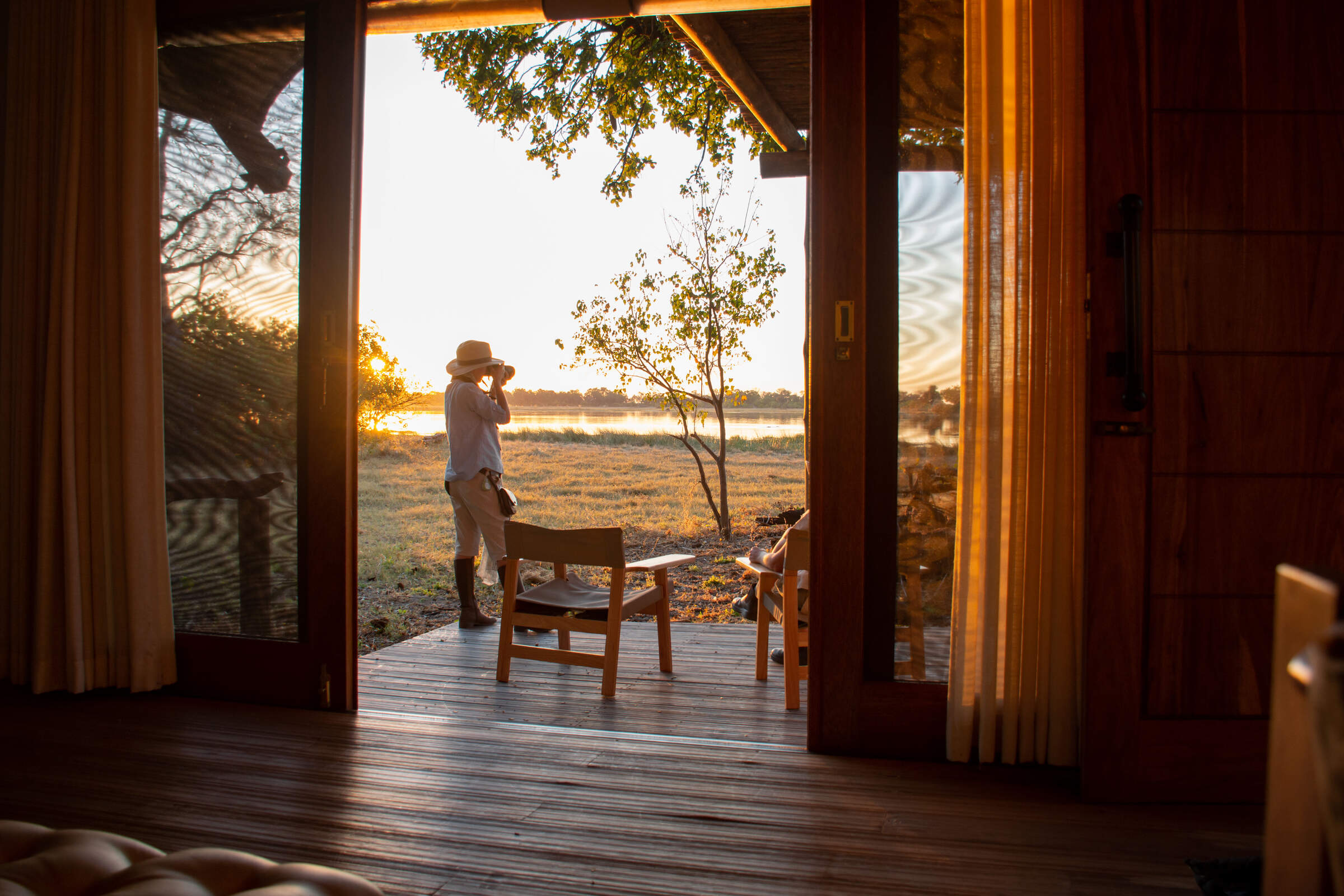
Kwara Camp
Kwara Camp's private reserve boasts land and water activities year-round, with excellent game-viewing opportunities and access to permanent channels of the north-east Okavango Delta.
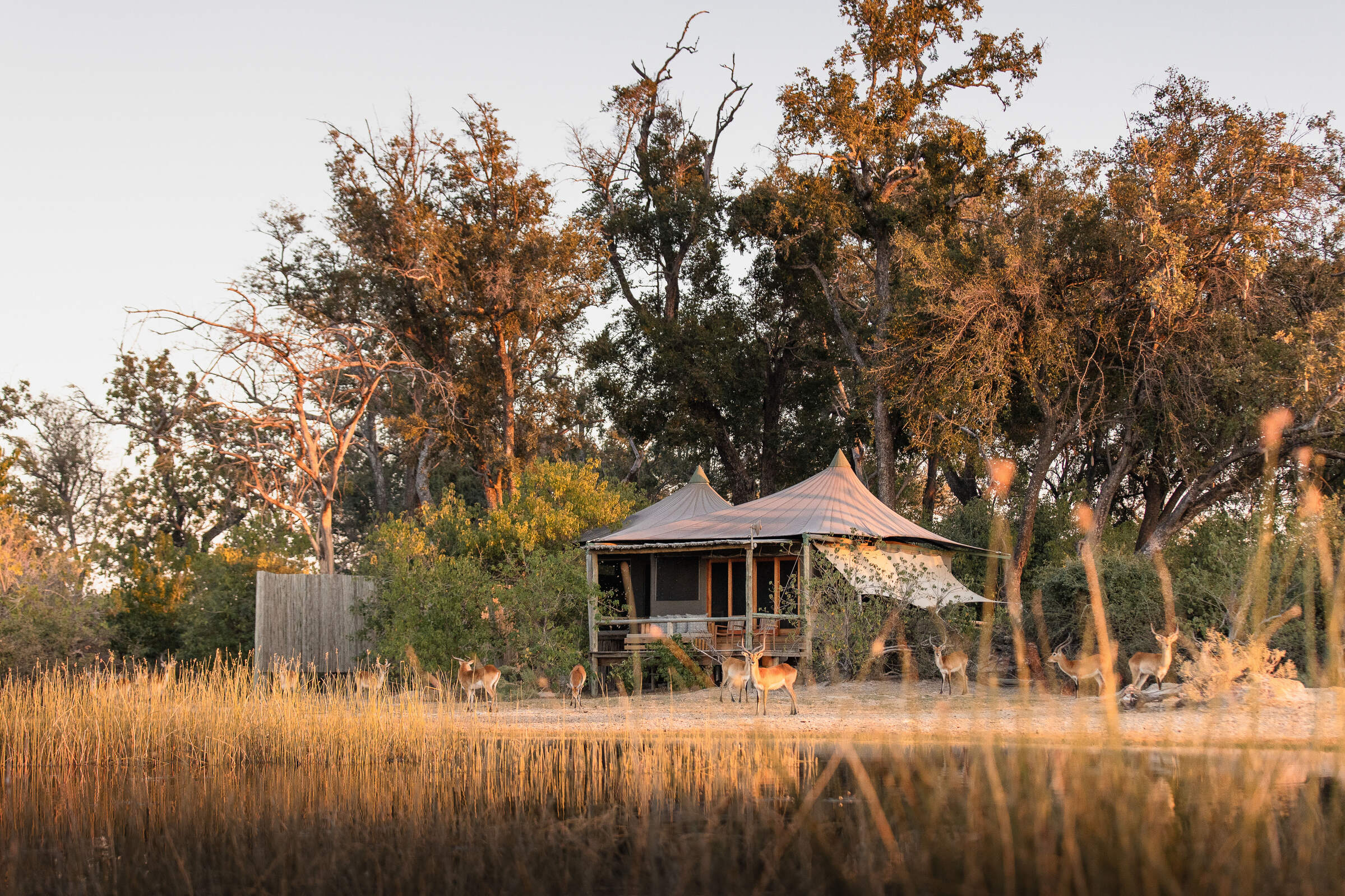
Little Vumbura
On a secluded island within a private reserve, Little Vumbura combines superb game viewing with a broad diversity of habitats in a truly picturesque setting.
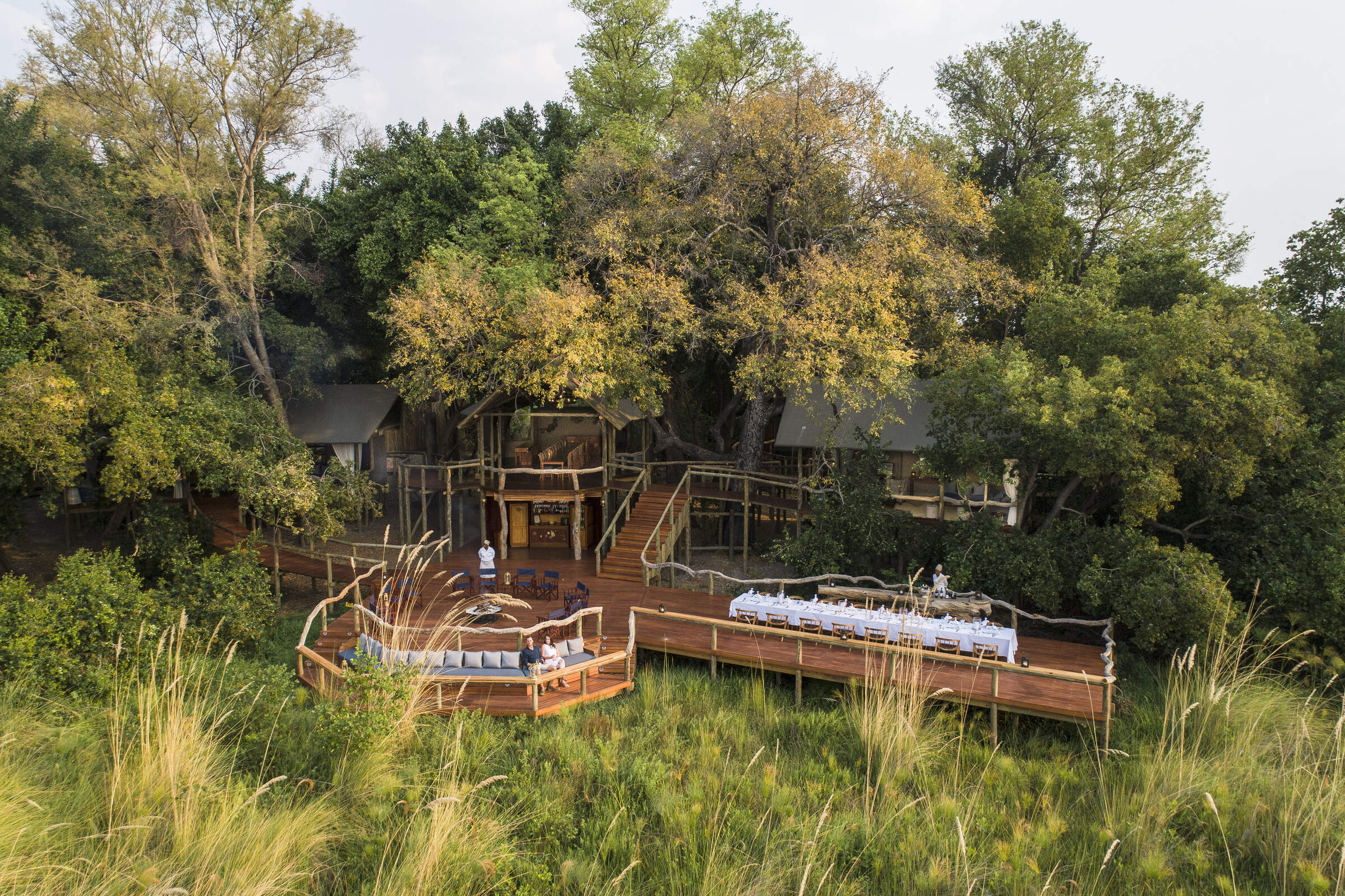
Shinde Camp
With experienced staff and a wealth of activities, Shinde offers a traditional safari in an exceptionally varied and wildlife-rich environment.
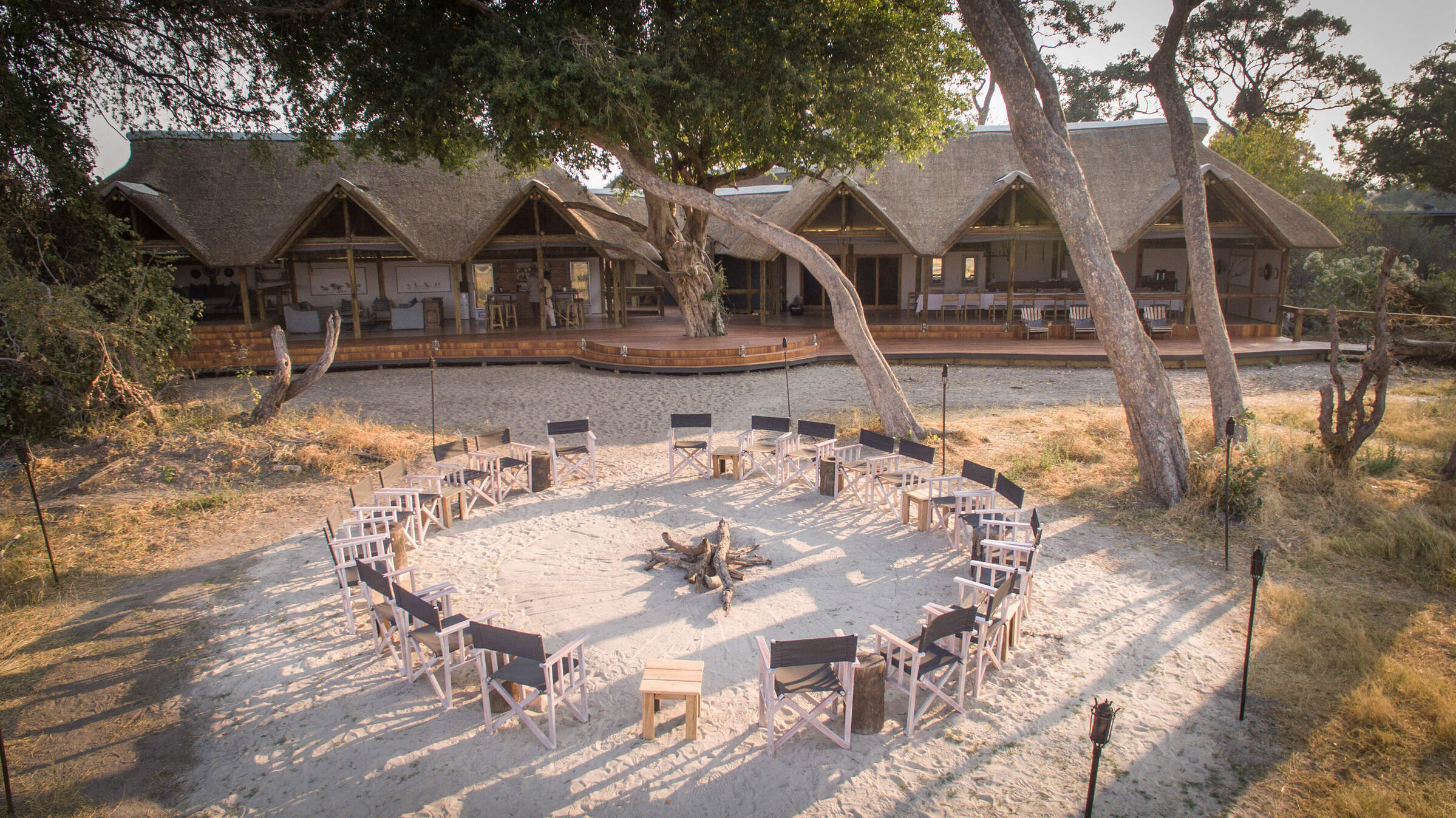
Splash Camp
Set in the Kwara Reserve, offering superb wildlife viewing year-round, Splash offers both land and water activities led by guides with a particular knack for tracking big game.
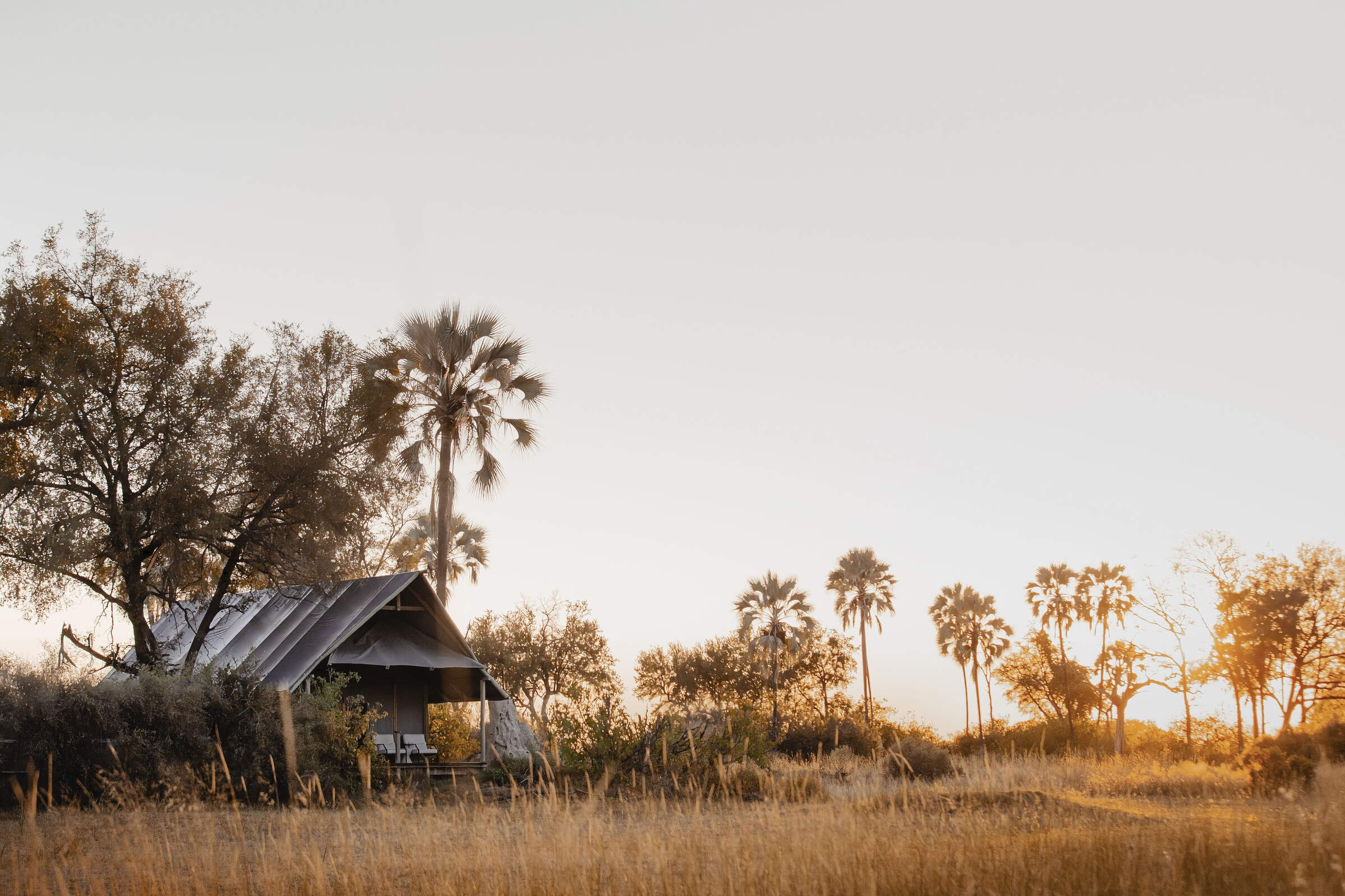
Chitabe Lediba
Chitabe Lediba, in Botswana's southern Okavango Delta, is a small family friendly safari camp; it offers great dry-land safaris and in our experience consistently delivers good game sightings.
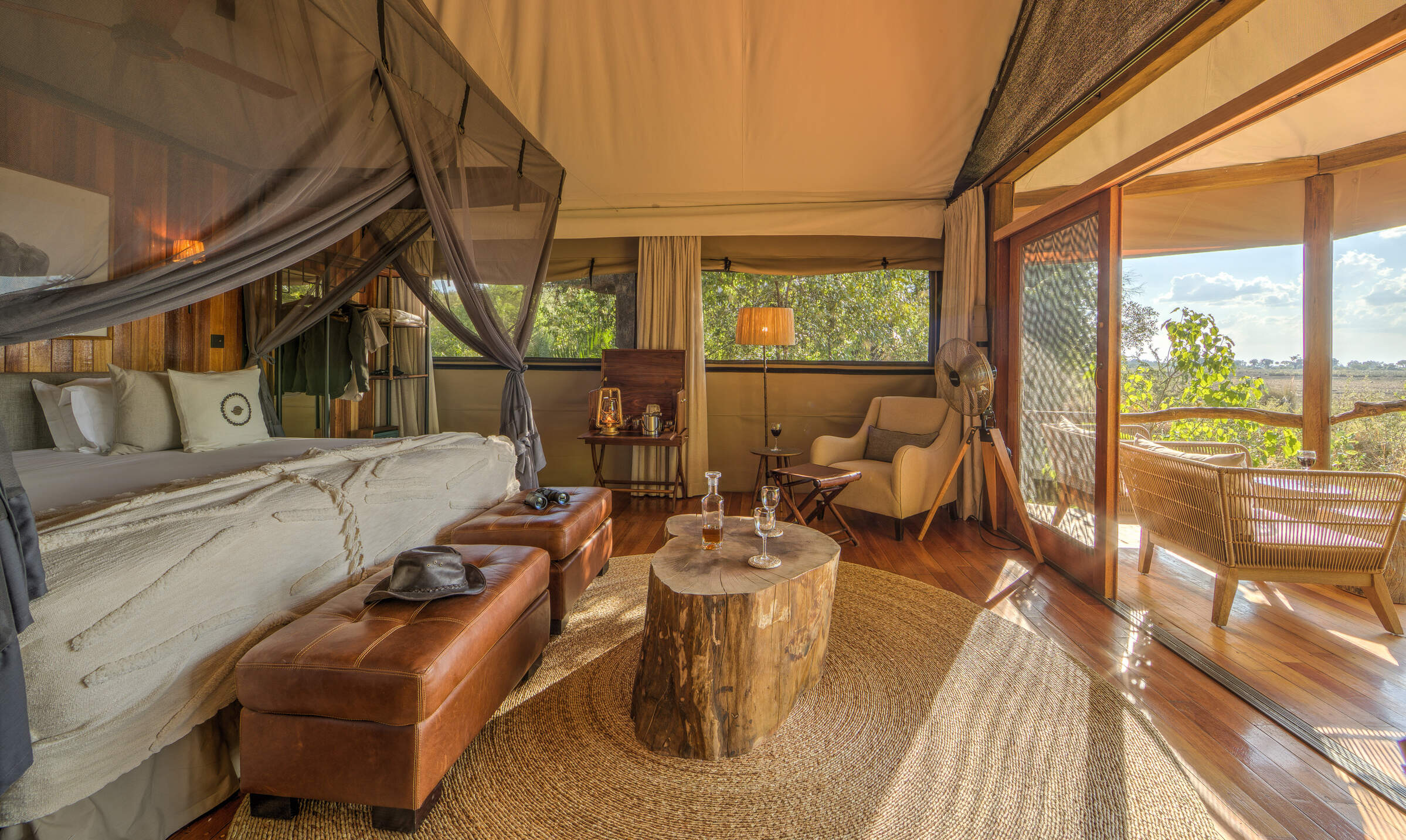
Kanana
In a beautiful part of the Delta, Kanana focuses on fantastic water activities and birding – including exclusive access to an impressive heronry.
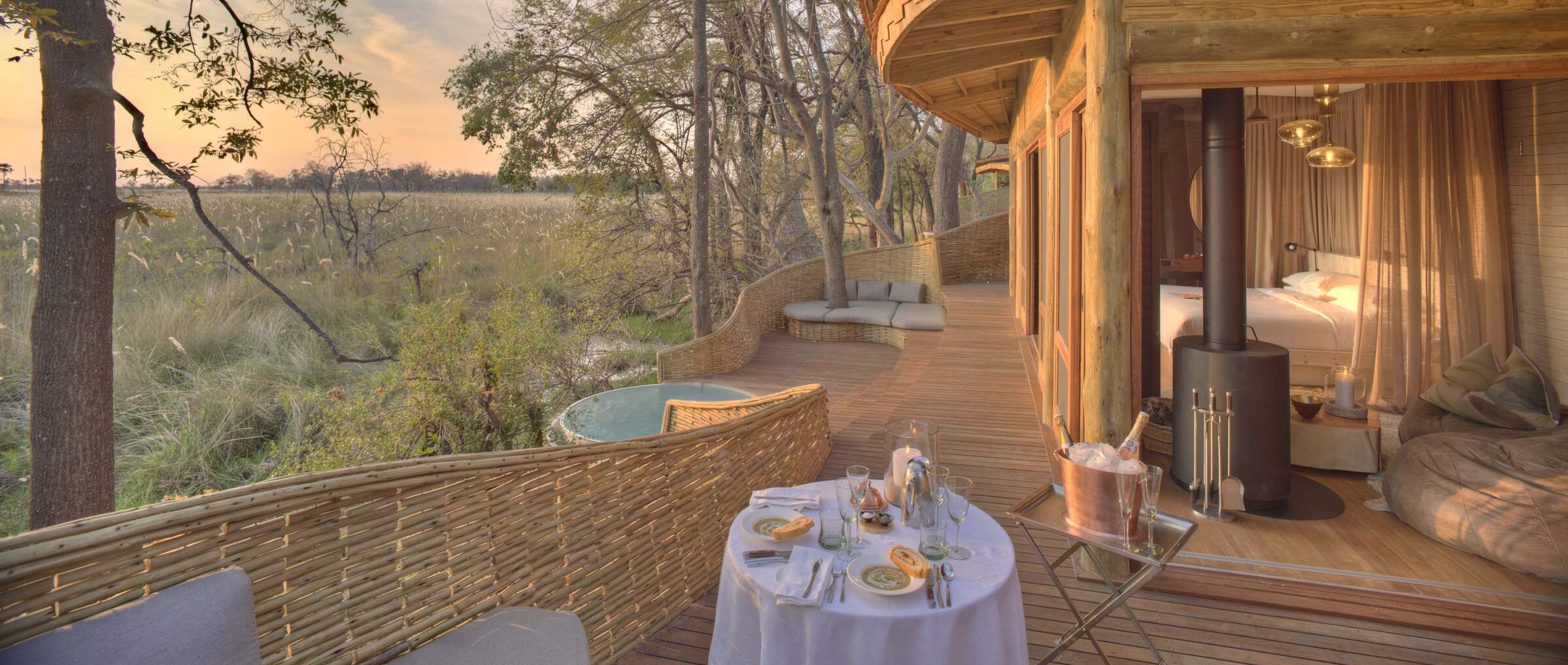
Sandibe Safari Lodge
The luxurious Sandibe Okavango Safari Lodge lies in a private concession in the heart of the Okavango Delta, beside Moremi Game Reserve, with superb big-game viewing.
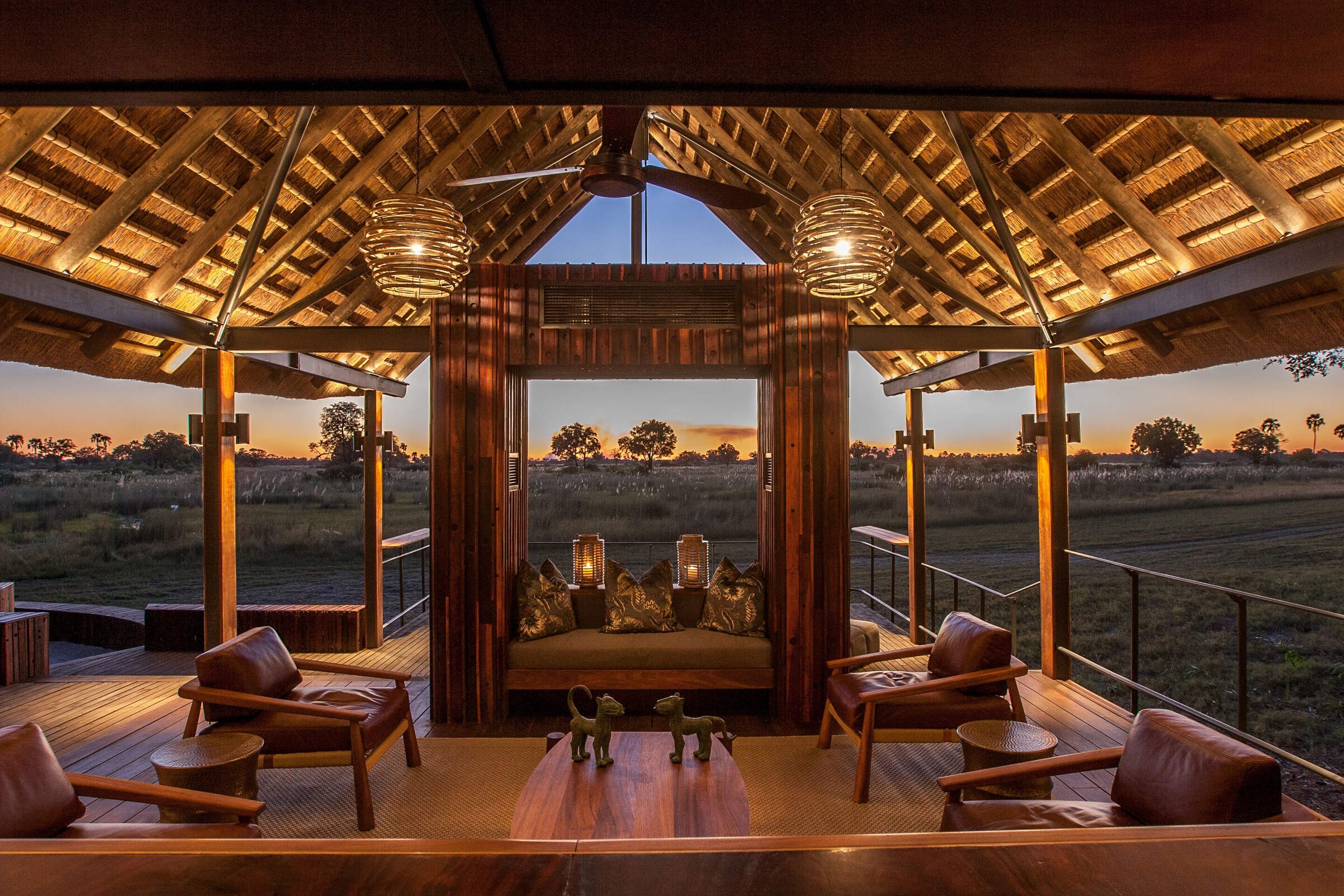
Chitabe Camp
In the southern Okavango Delta, the excellent Chitabe Camp concentrates on dry-land safaris in an area that we've found particularly good for wild dog sightings.
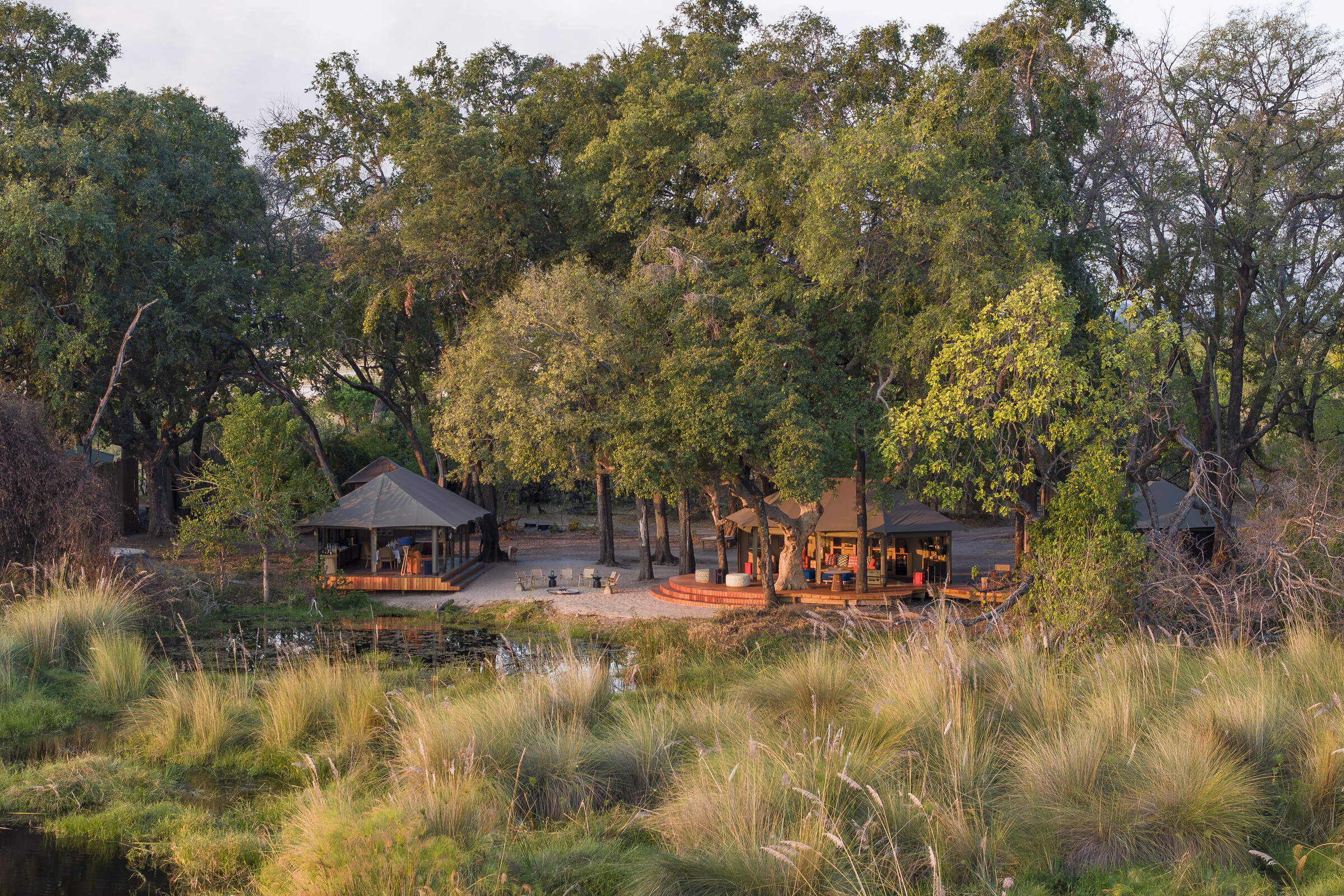
Shinde Footsteps
Small and simple, but comfortable, Shinde Footsteps focuses on walking safaris as well as game drives; it also runs a special children's programme so is particularly suitable for families.
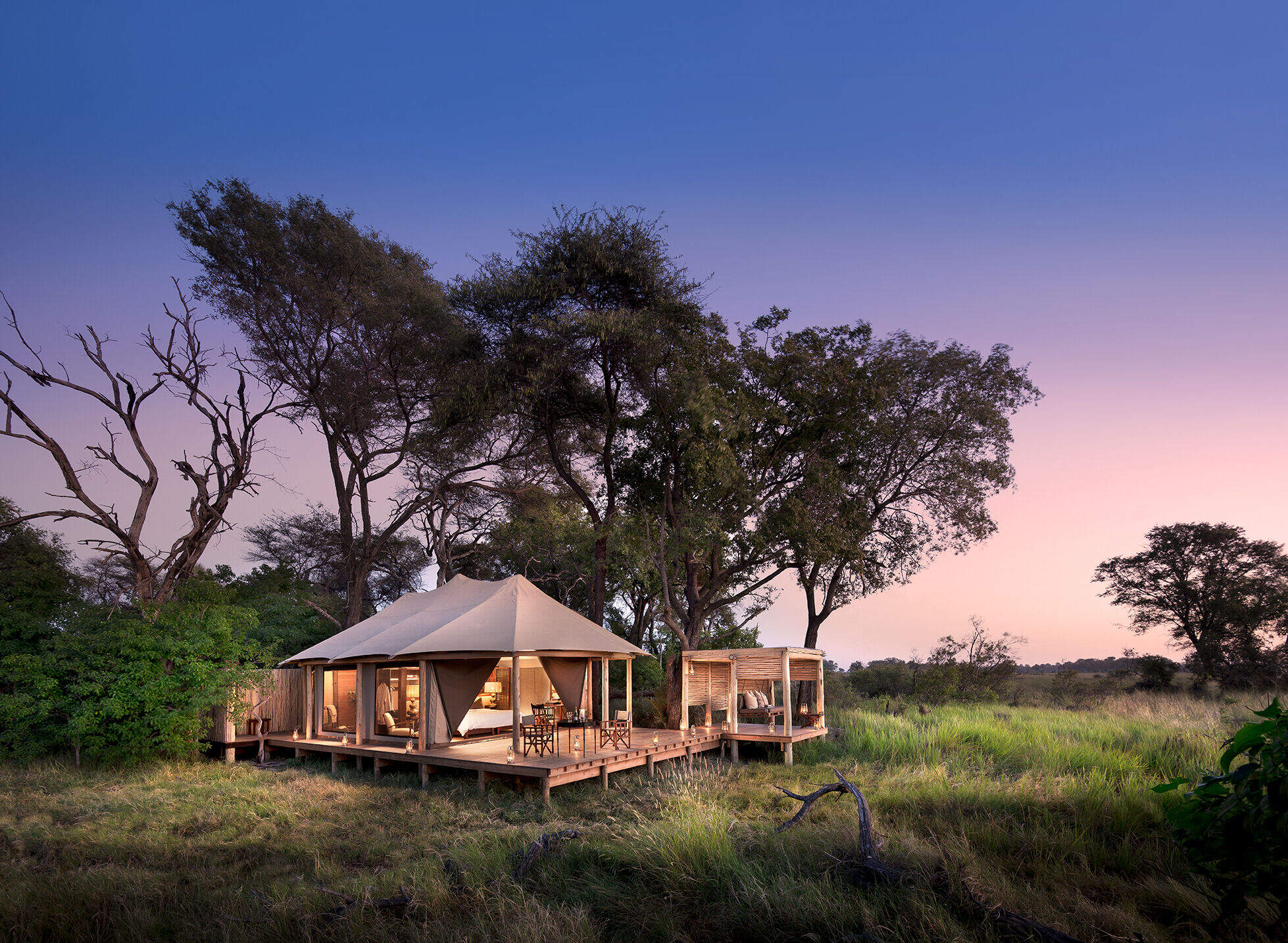
Nxabega Tented Camp
Nxabega offers a selection of both land- and water-based activities, plus very good guiding, food and service, but game viewing can be somewhat erratic.
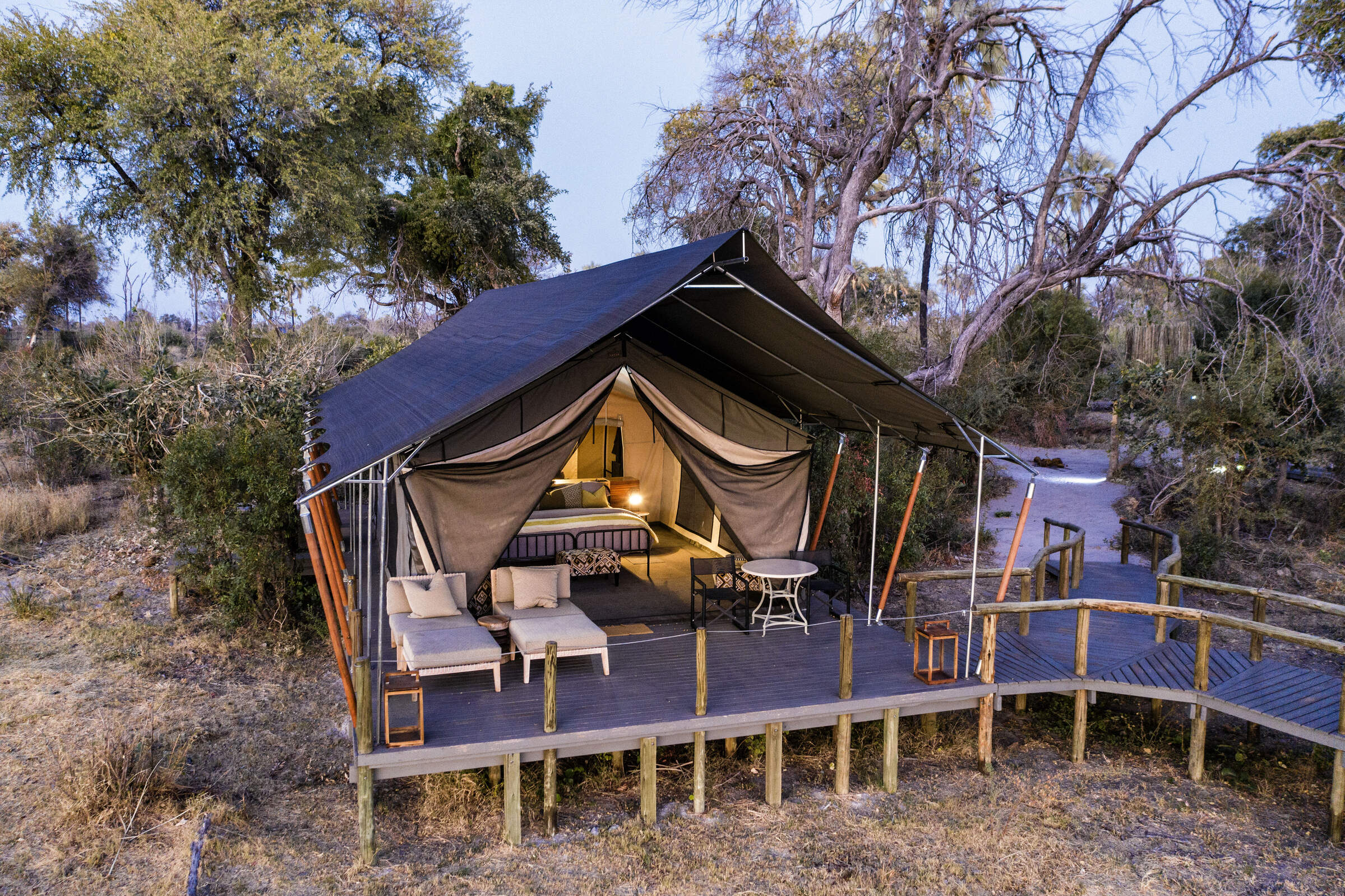
Gomoti Plains
Overlooking a tributary of the Gomoti River, Gomoti Plains Camp is a classically designed camp with very comfortable tents in a good game-viewing area.
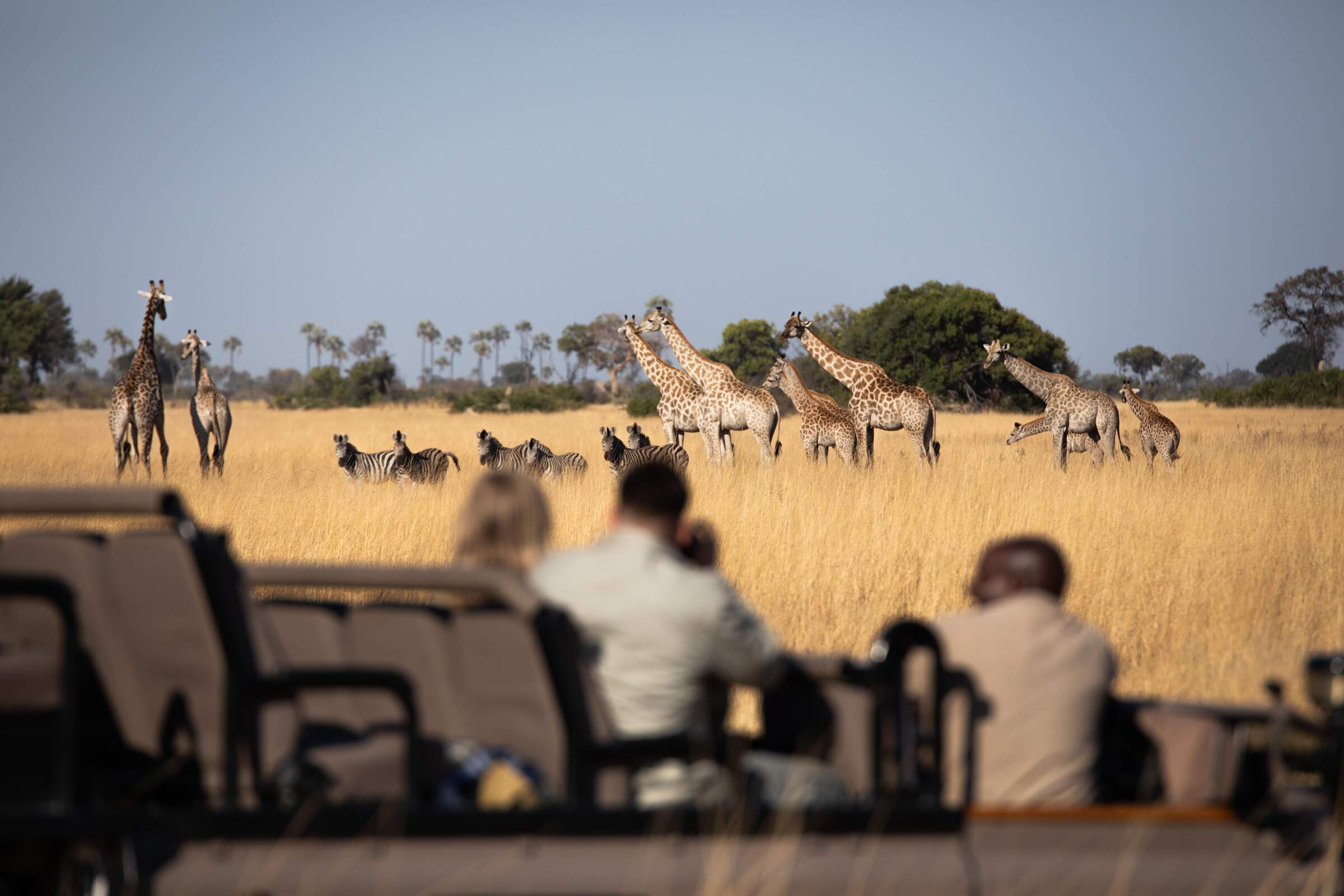
Tubu Tree Camp
A traditional tented camp with a distinctive tree-house feel, Tubu Tree offers some of the best game viewing in the Jao Reserve.
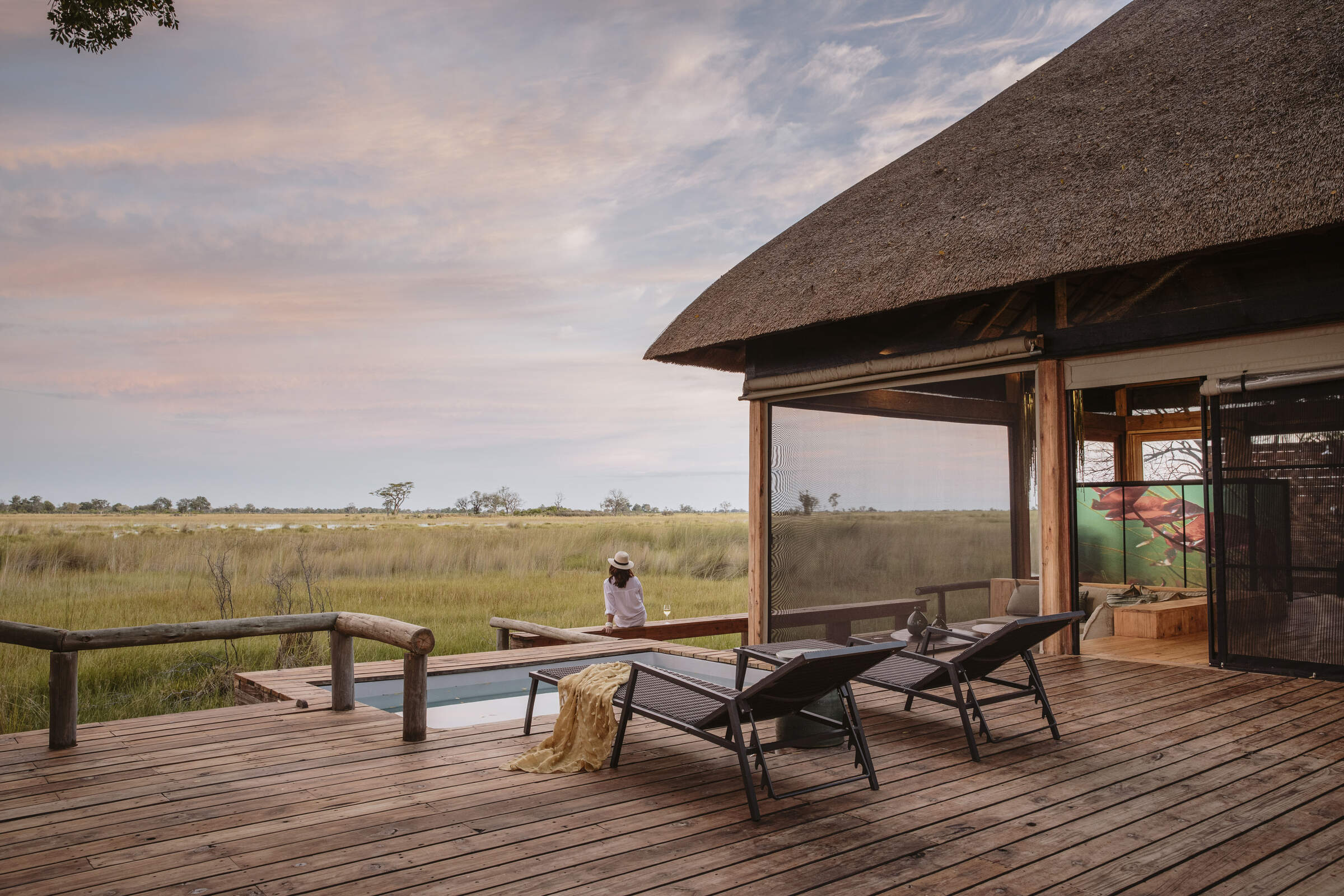
Vumbura Plains
Indulgently stylish and luxurious, Vumbura Plains offers superb game viewing and birding on an exceptionally varied private reserve.
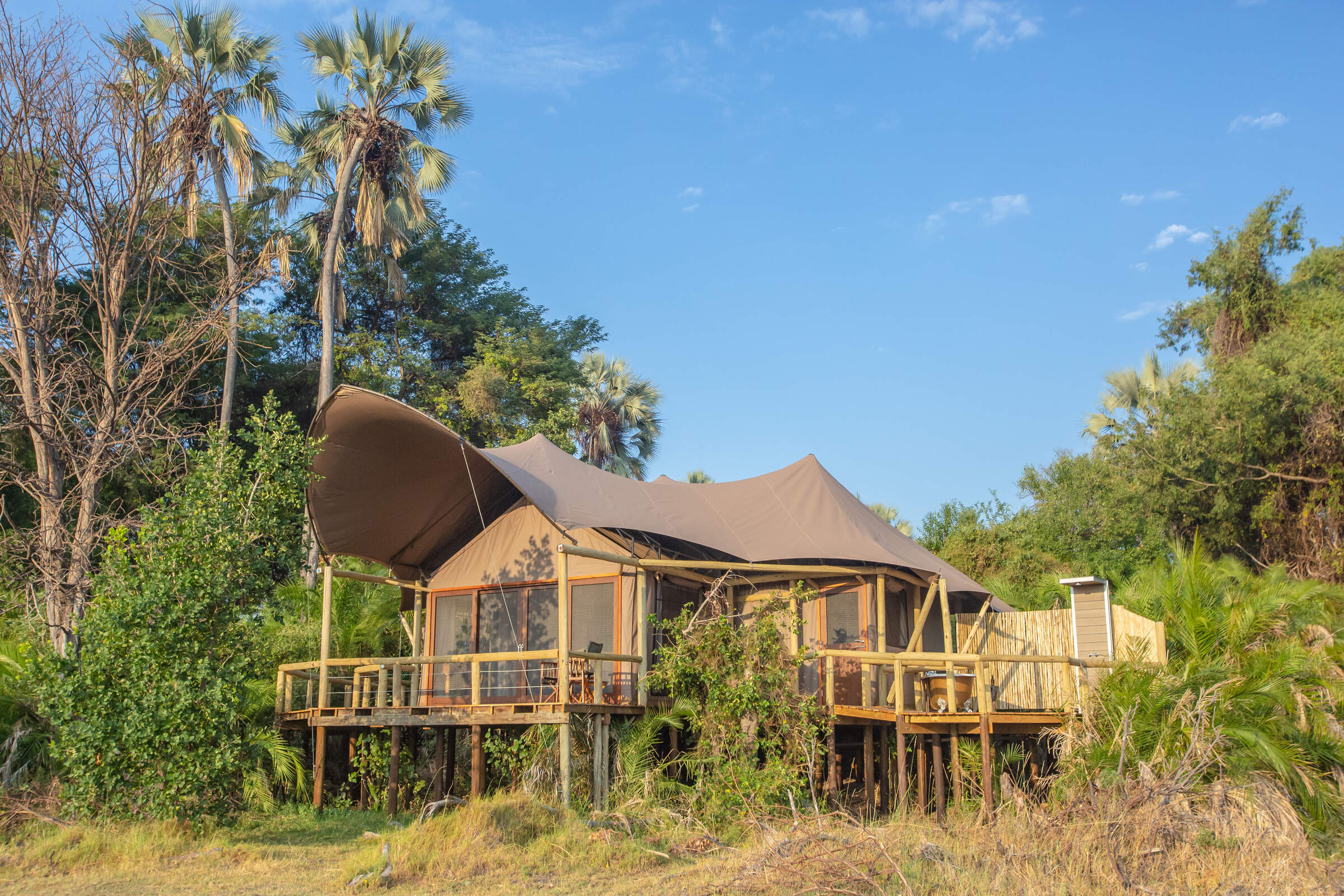
Jacana Camp
Jacana Camp is a small safari camp with an informal island feel; it is ideal for water-based activities in the Delta and offers excellent birdwatching.
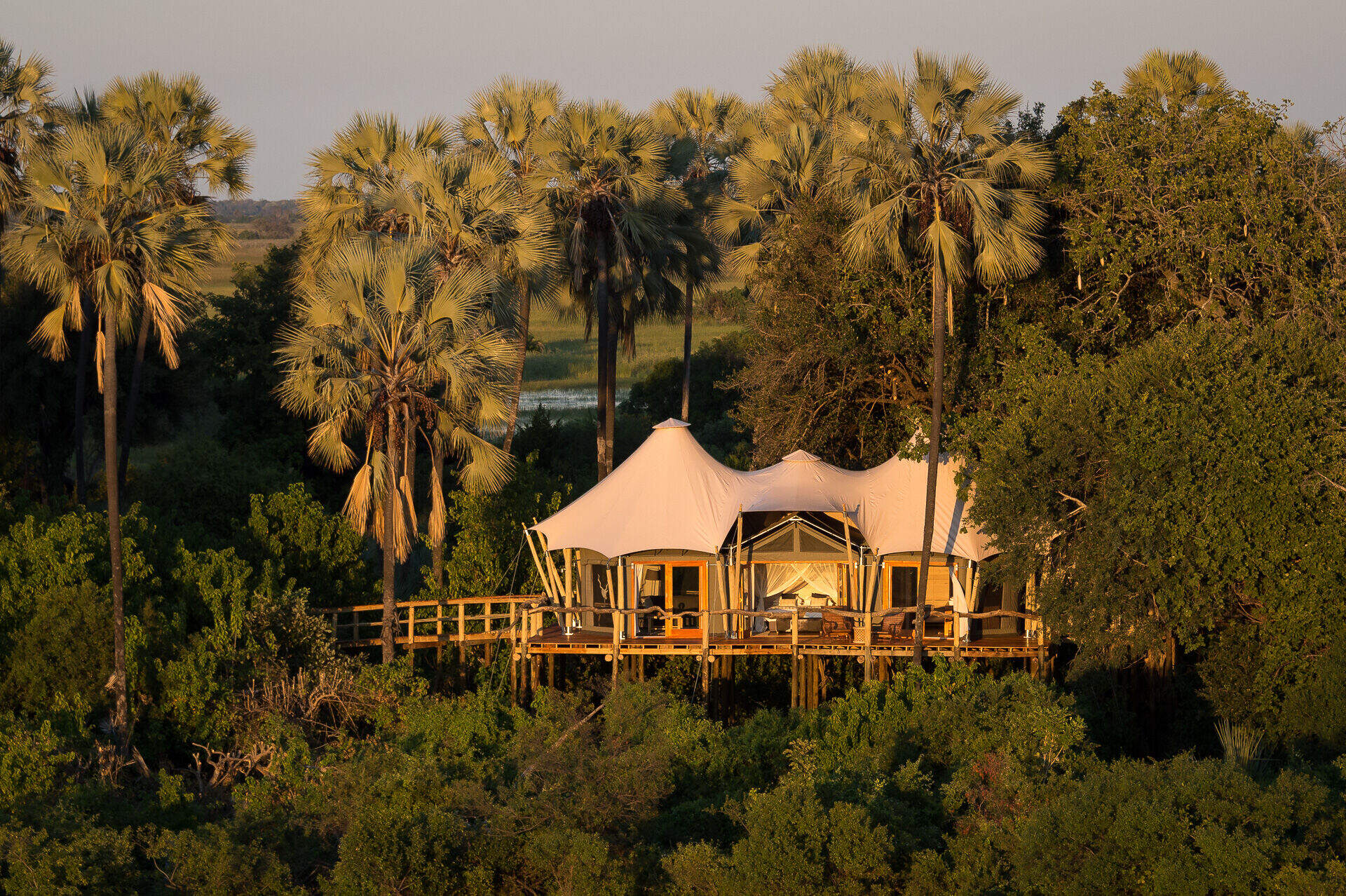
Kwetsani Camp
Deep in the Delta, overlooking a floodplain, Kwetsani Camp is a small, high-end camp with good access to areas for land and water-based activities.
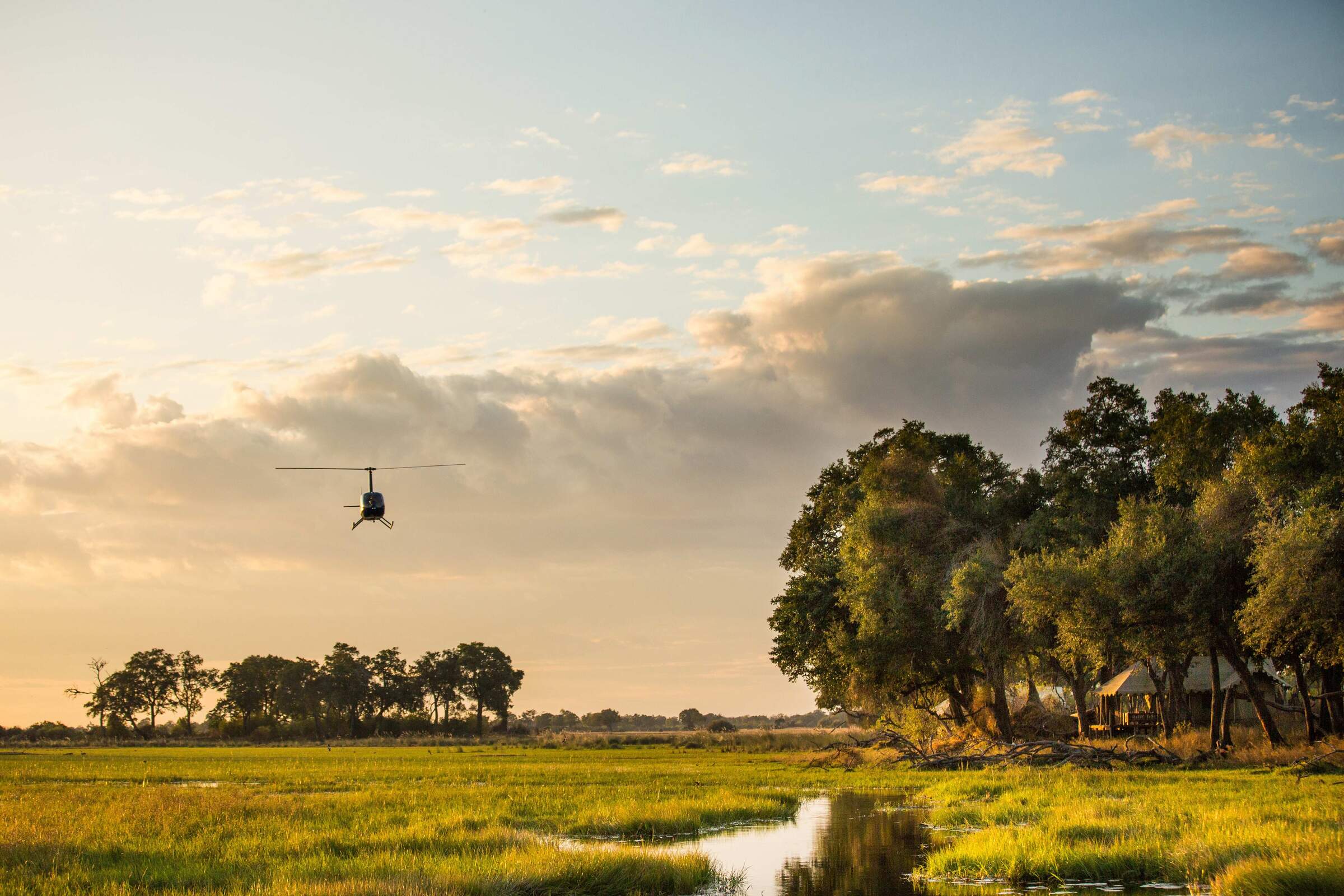
Duba Explorers Camp
Intimate and elegant, Duba Explorers Camp promises a firm safari focus in a remote corner of the Okavango, led by a team who value the highest guiding and hosting standards.
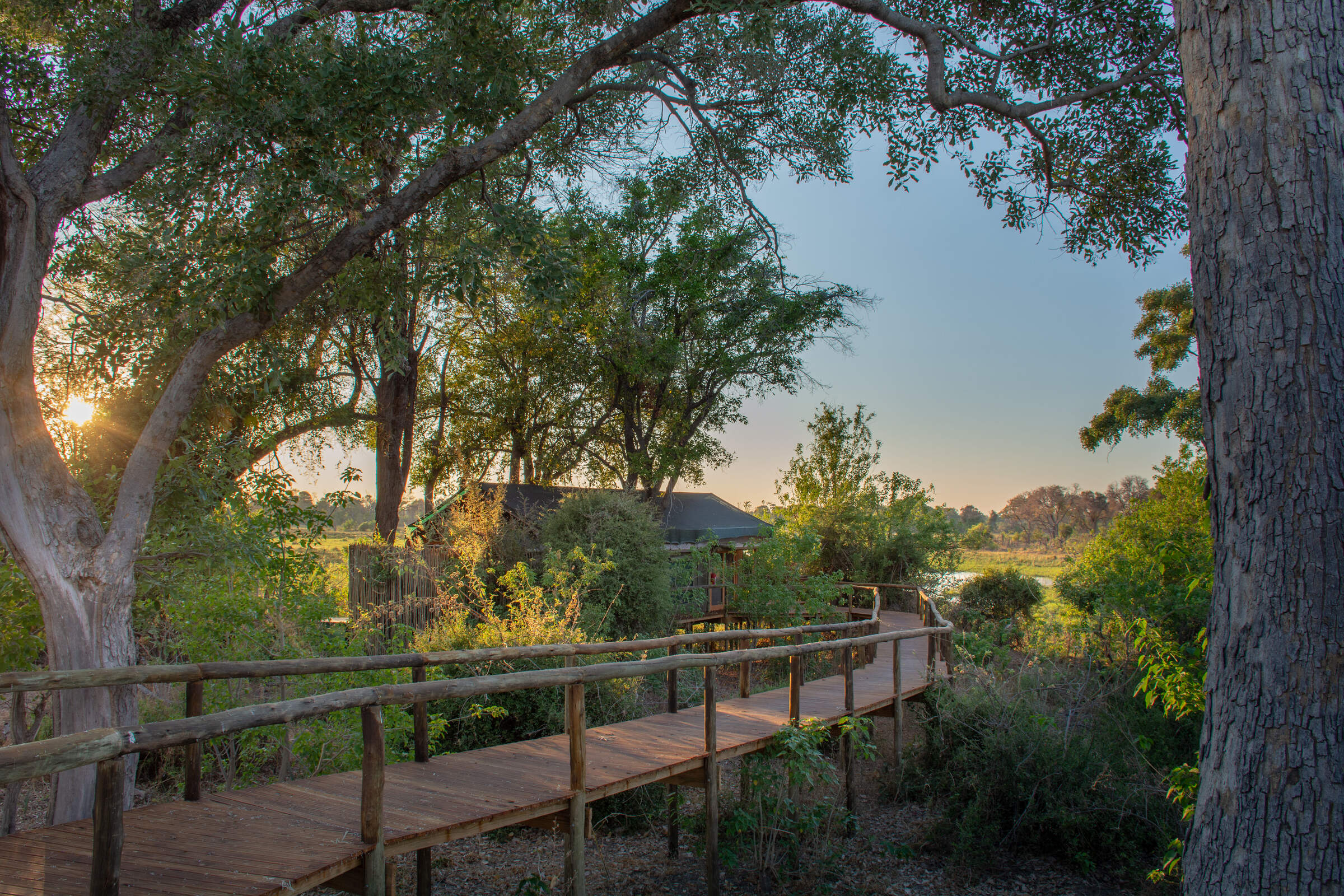
Mma Dinare
Beautifully located in a private concession overlooking the Gomoti River, the traditional Mma Dinare is very well-priced for the Okavango Delta.
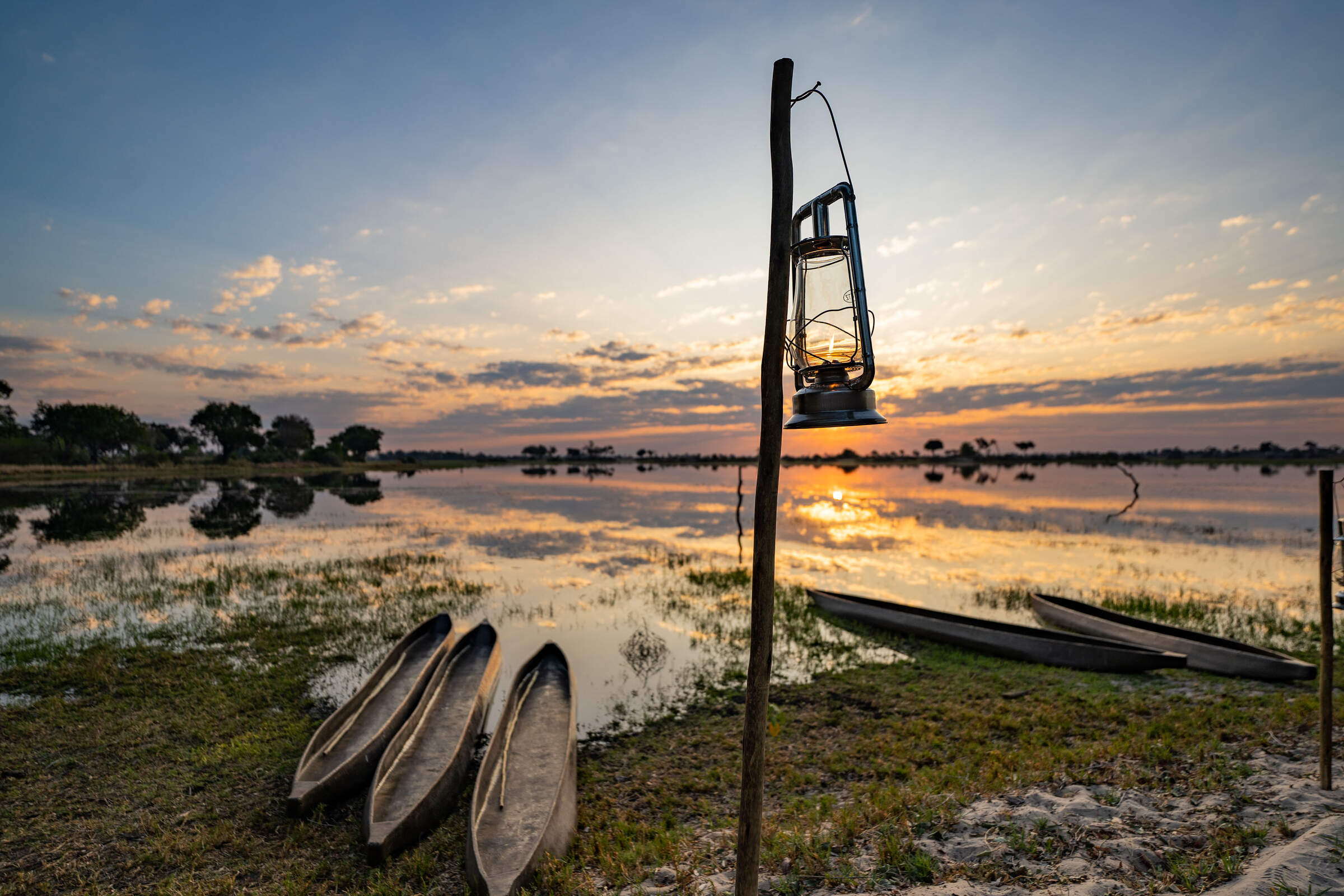
Pom Pom Camp
Amidst stunning Okavango Delta scenery, Pom Pom offers idyllic mokoro trips in season, great birdwatching, and increasingly good big-game sightings, especially leopards.
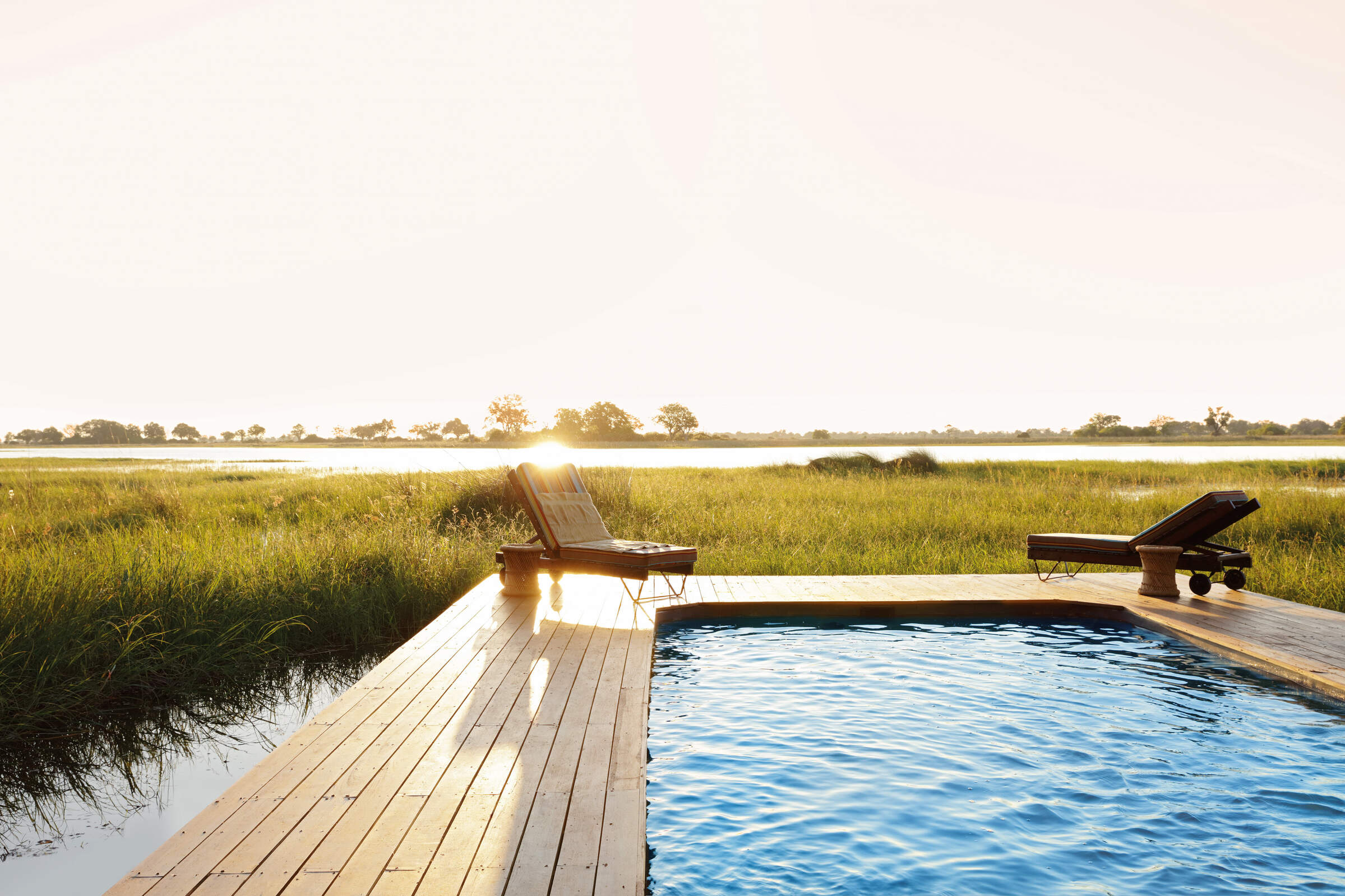
Mapula Lodge
For an affordable yet varied safari encompassing a range of eco-systems, the traditional Mapula Lodge takes a lot of beating.
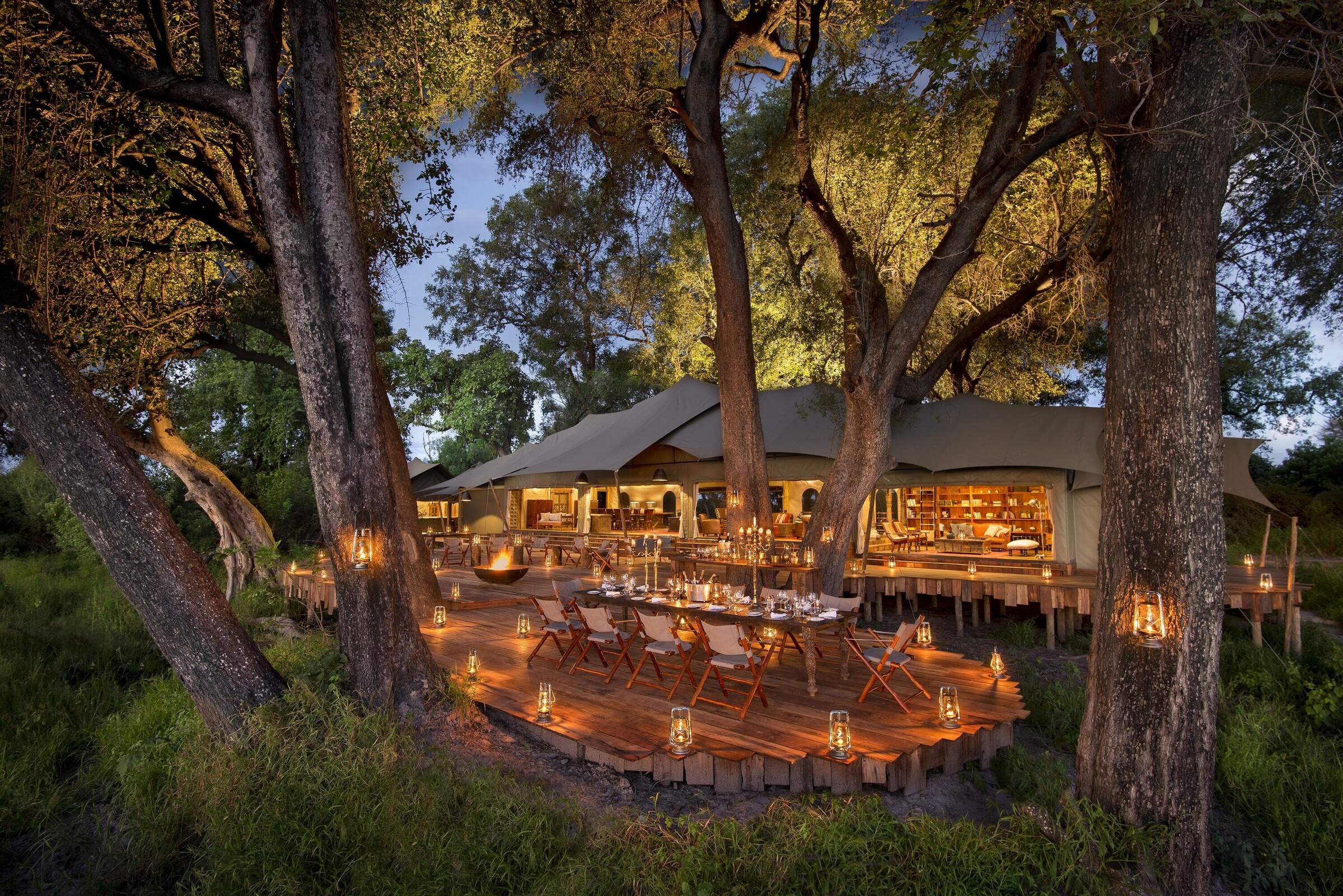
Duba Plains Camp
Duba Plains Camp is a traditional yet luxurious safari camp, best known for the thrilling lion behavior interaction that is often see during the day.
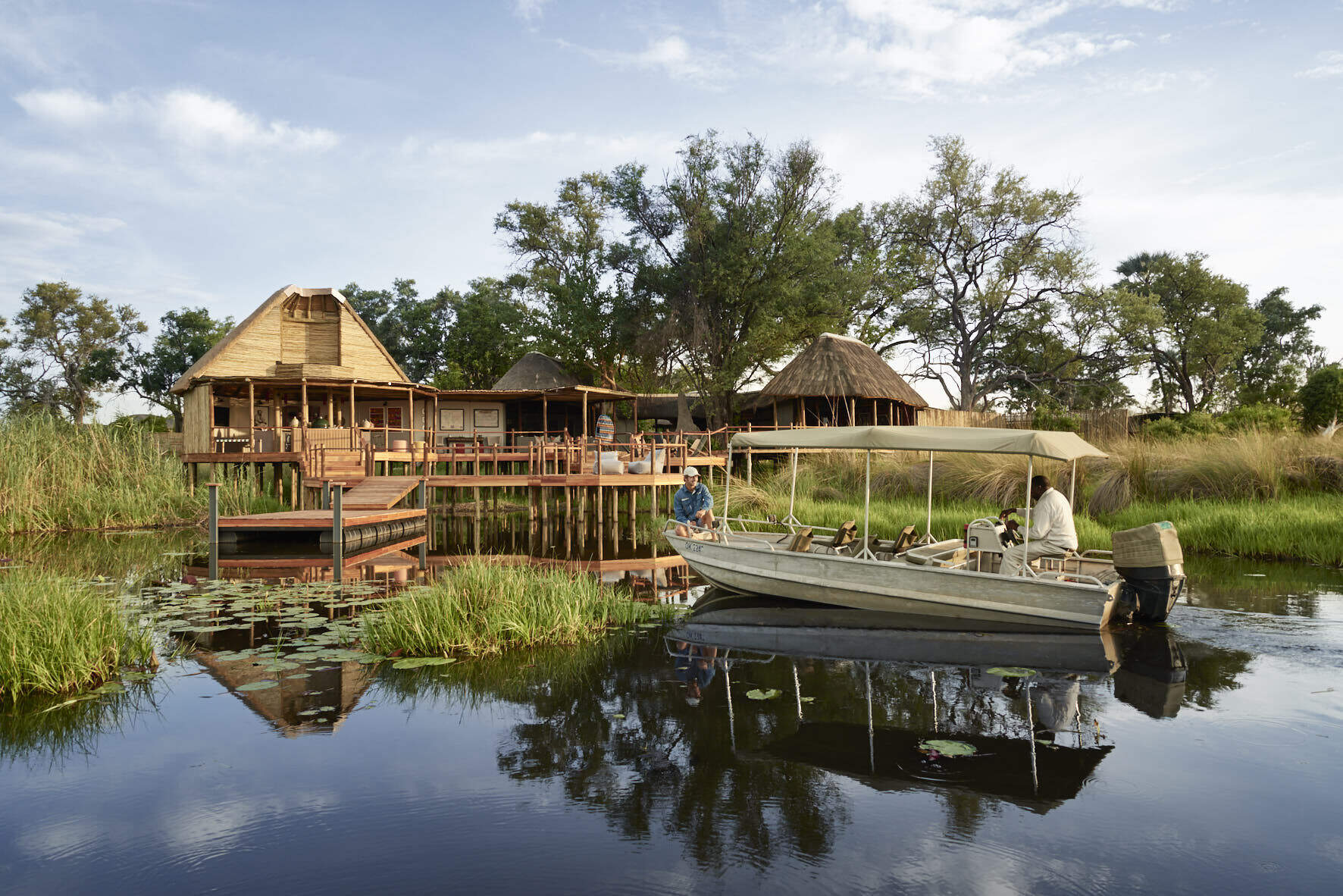
Baines' Camp
Baines' Camp is a well-run, intimate camp in a pretty part of the Okavango, offering a range of activities and the option to spend a morning walking with elephants.
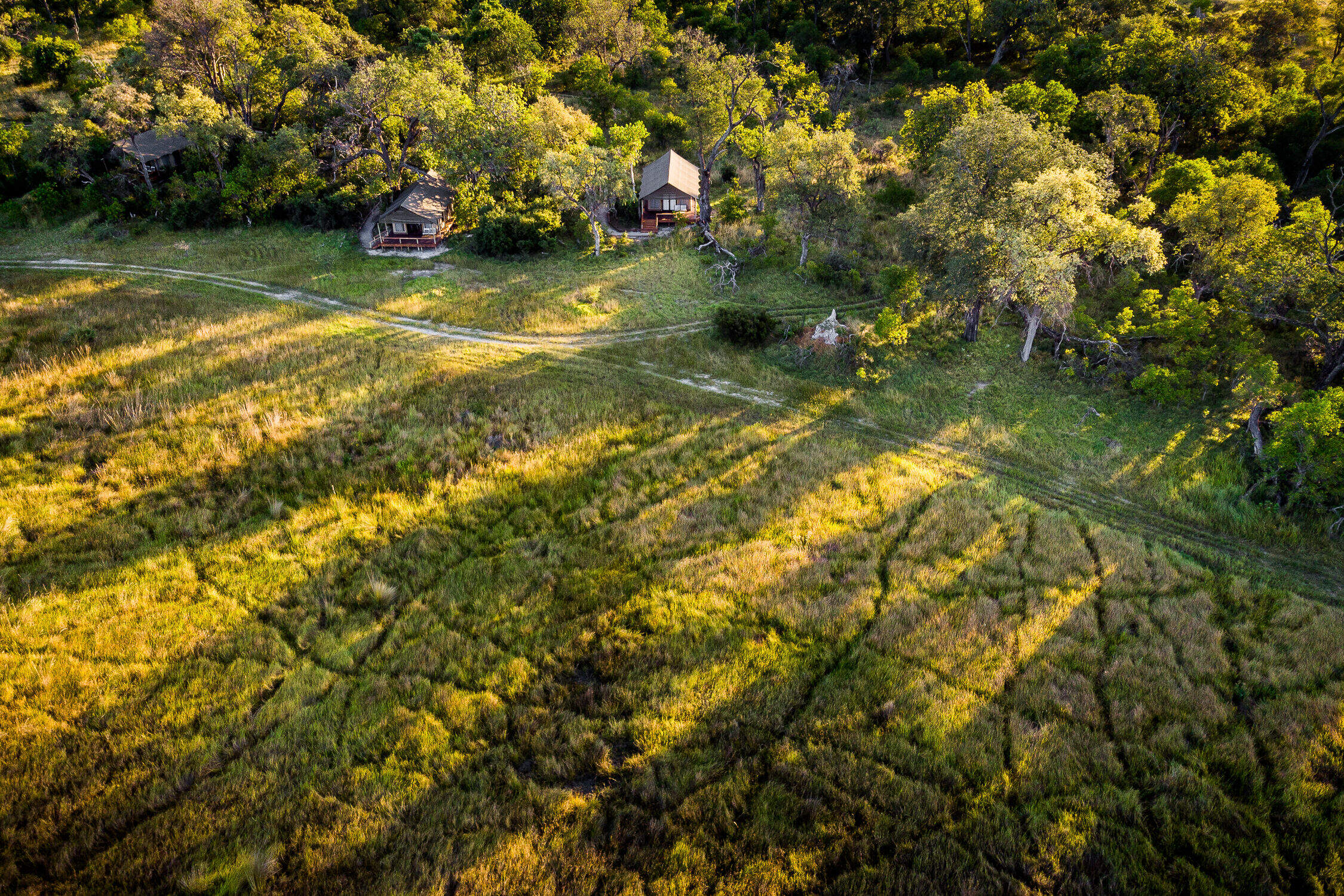
Stanley's Camp
In a private concession south of Moremi Game Reserve, Stanley's Camp offers 4WD game drives, seasonal water activities and a superb elephant interaction.
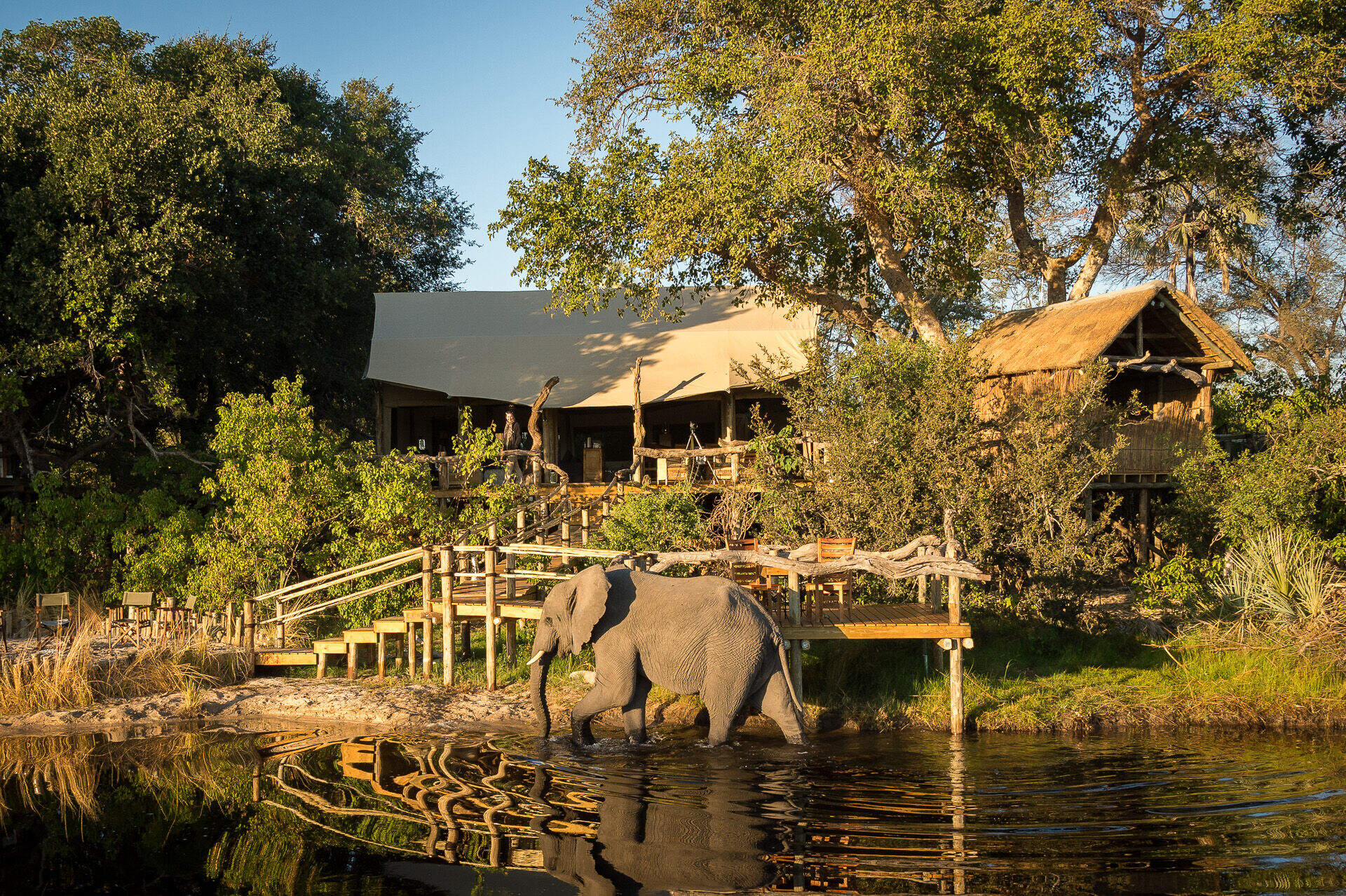
Little Tubu
Little Tubu is a new, traditional camp with just three tented chalets and a distinctive tree-house feel. The areas around it can be explored by water and land-based activities year round.
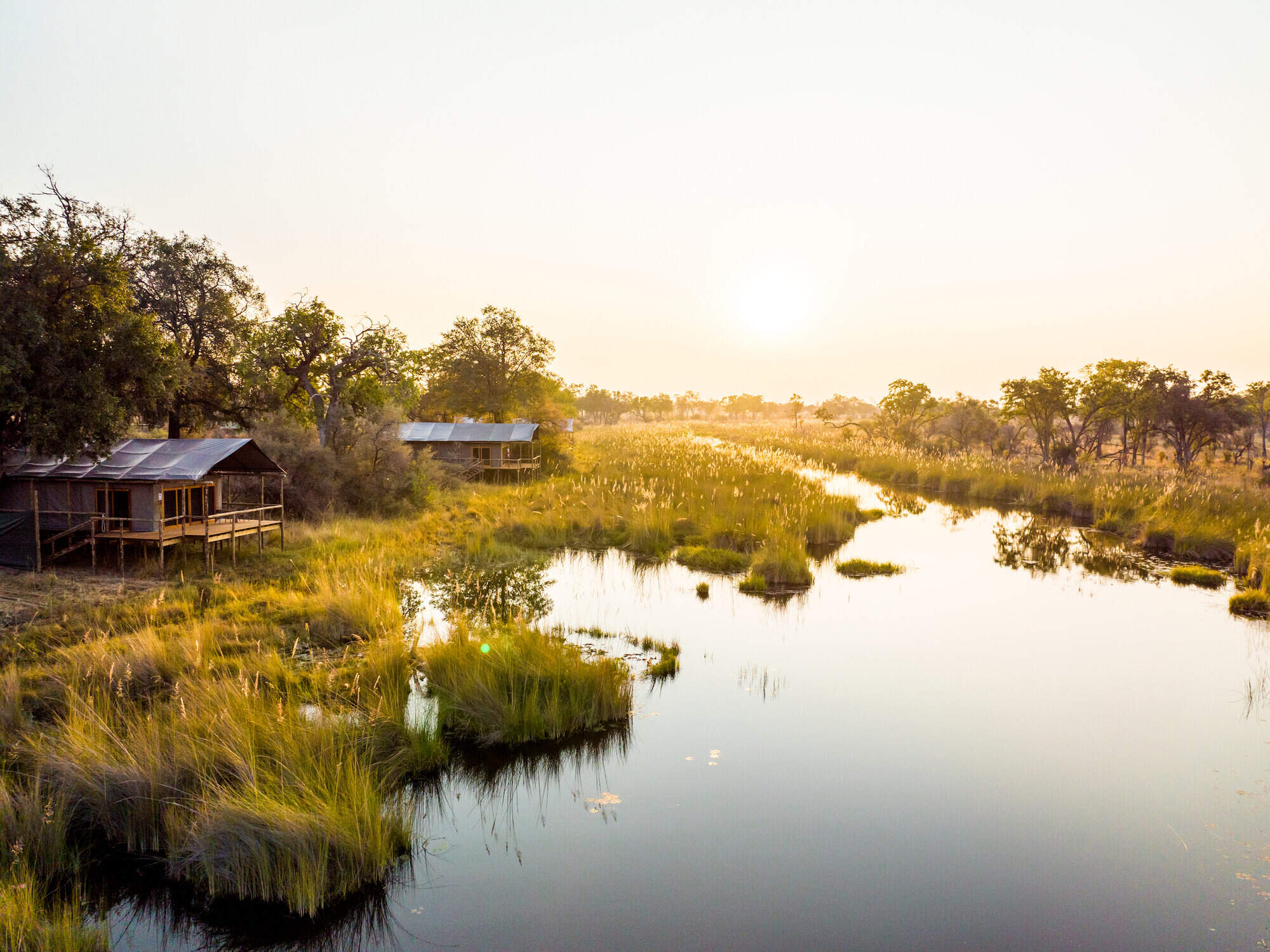
4 Rivers
4 Rivers is a new camp in a previously in accessible area of the excellent Kwara concession.
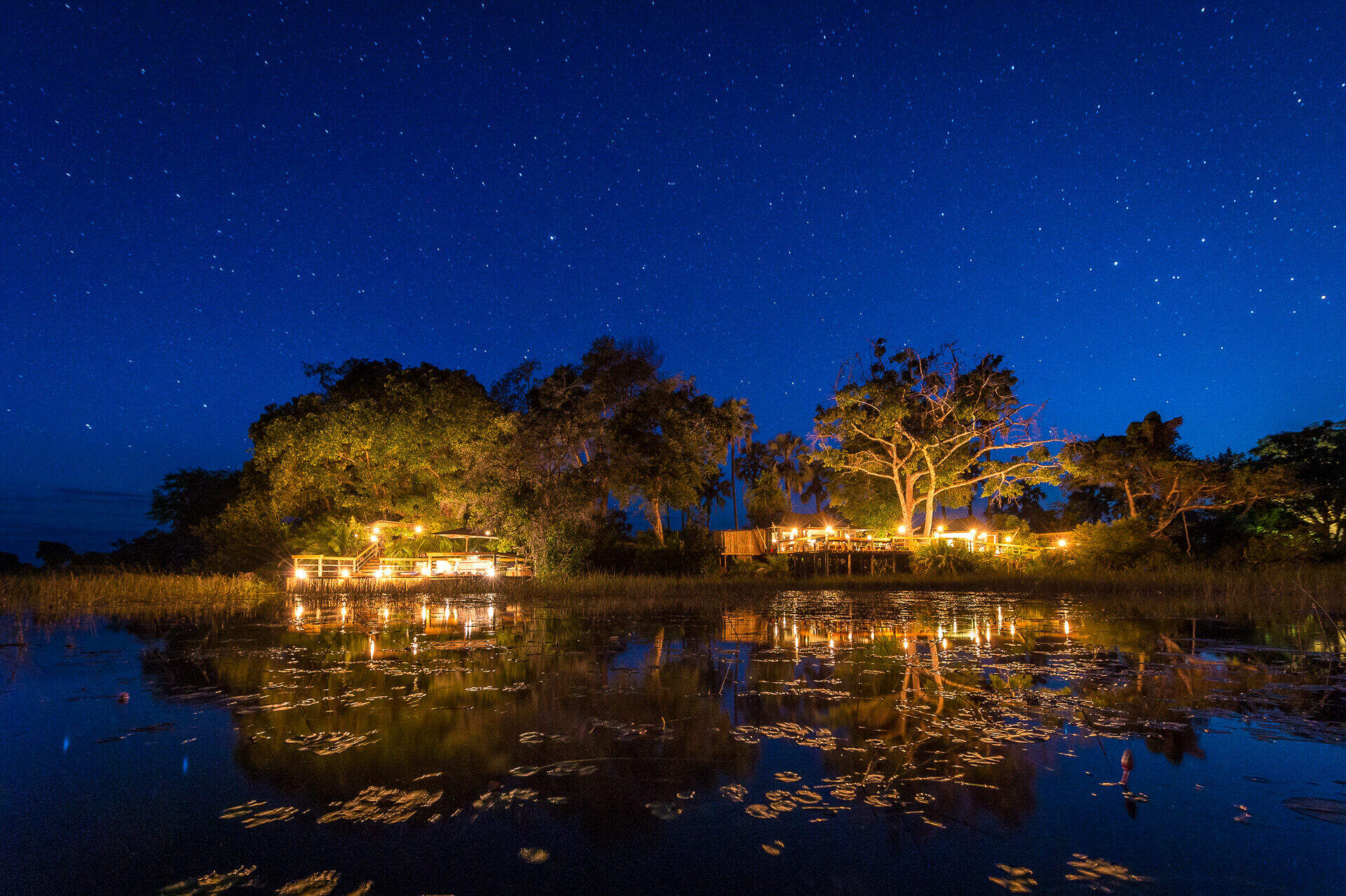
Pelo Camp
In a pristine wilderness environment deep in the Okavango Delta, the seasonal Pelo Camp is tented yet comfortable, with activities focusing on excursions by mokoro.
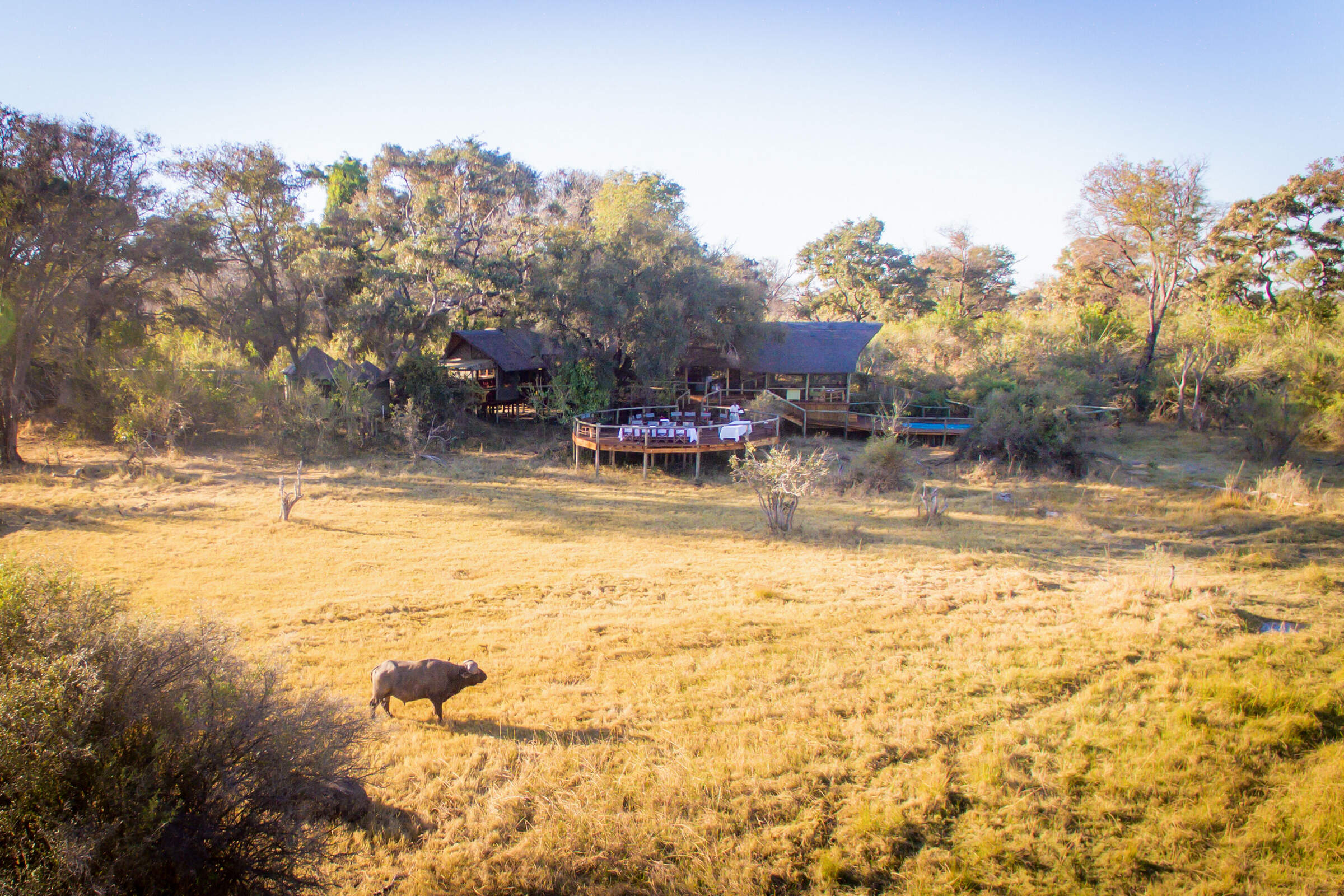
Rra Dinare
Located in a private concession in the southern reaches of the Okavango Delta, overlooking the Gomoti River, Rra Dinare is a traditional-style, well-priced camp.
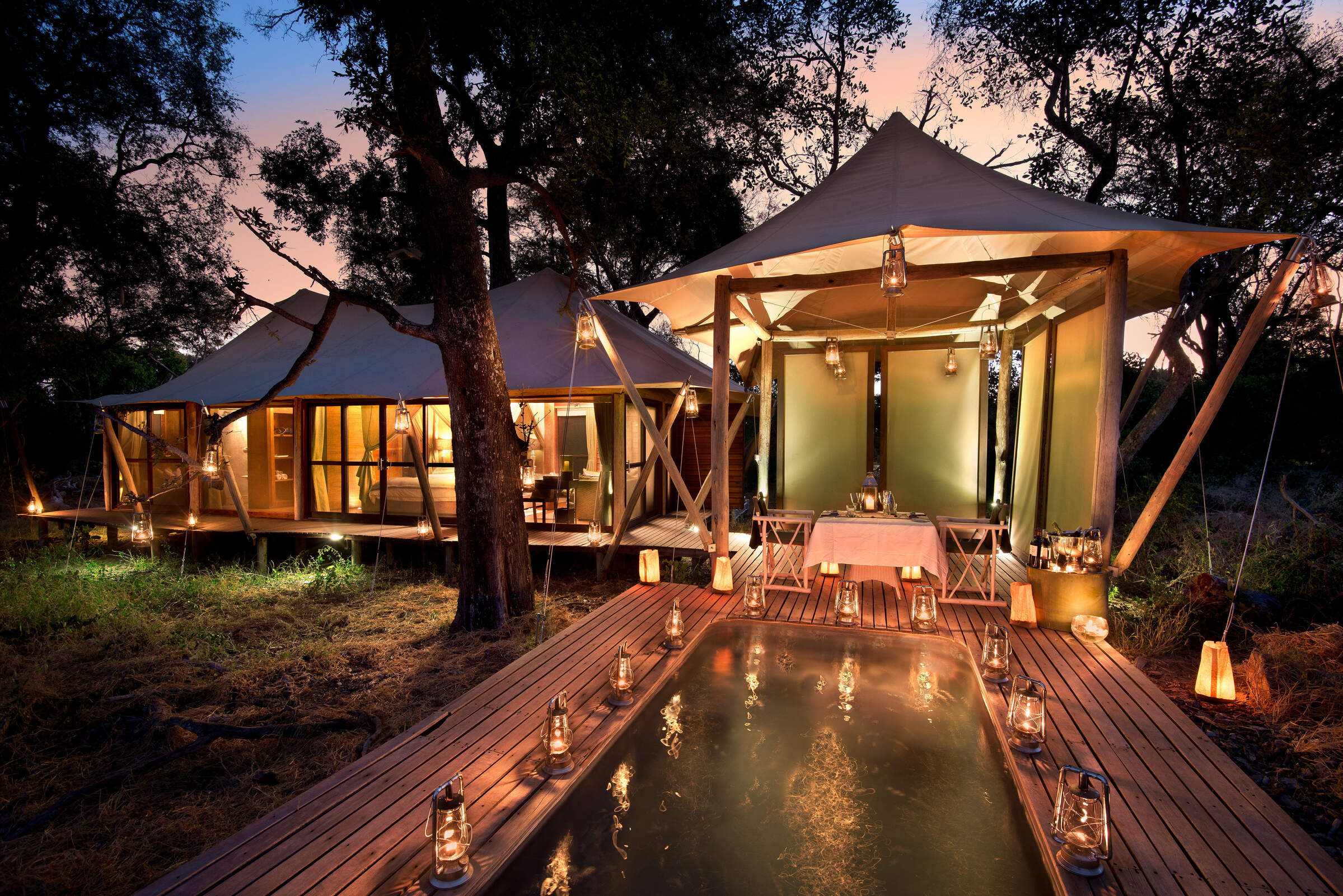
Xaranna
Xaranna is a plush tented camp amongst the idyllic waterways and islands of the Delta. Each air-conditioned tent has a plunge pool. Water activities and pampering are the focus here.
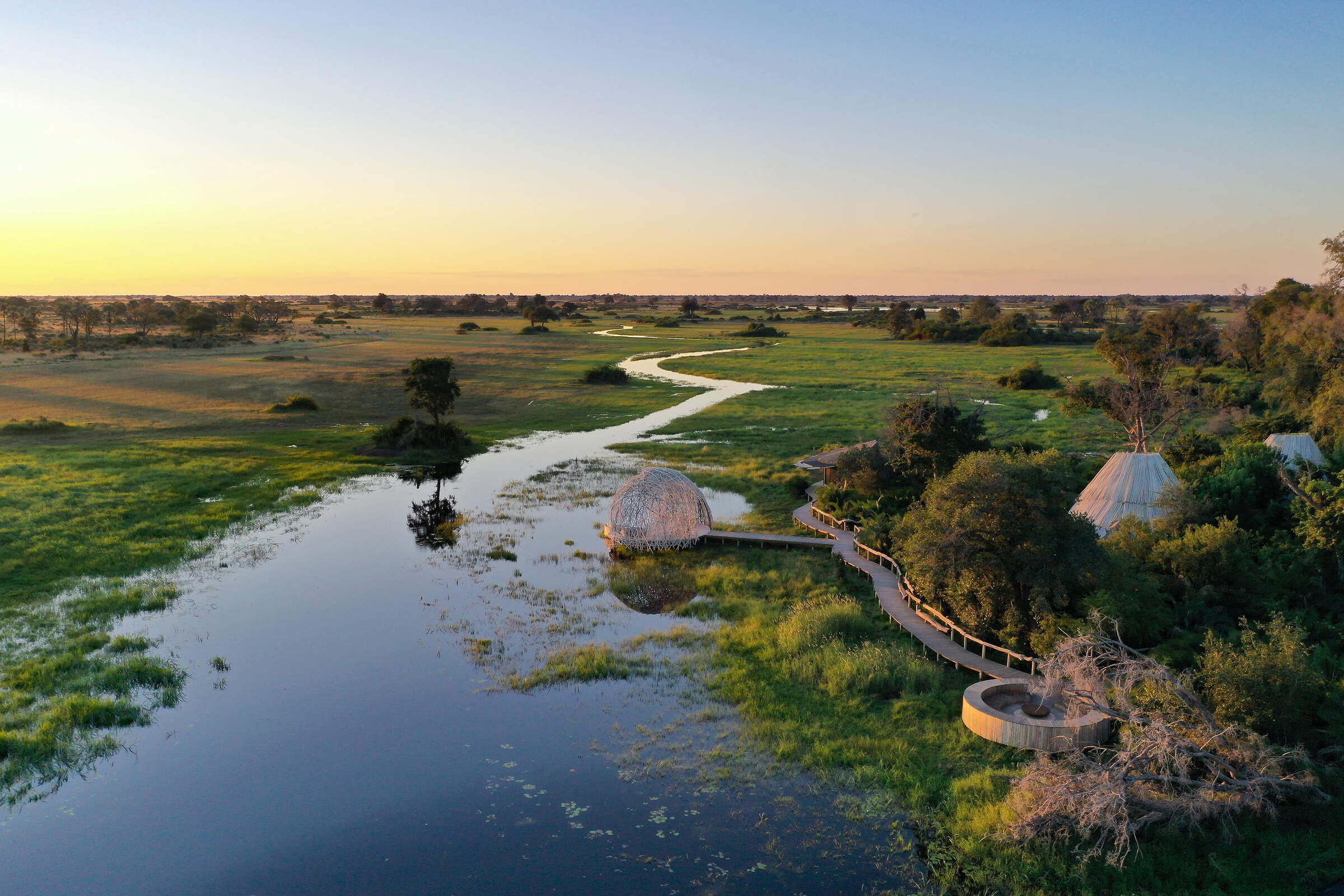
Jao Camp
In a beautiful area with fantastic water activities, Jao combines an idyllic location with high levels of luxury and service, and a top-end spa.
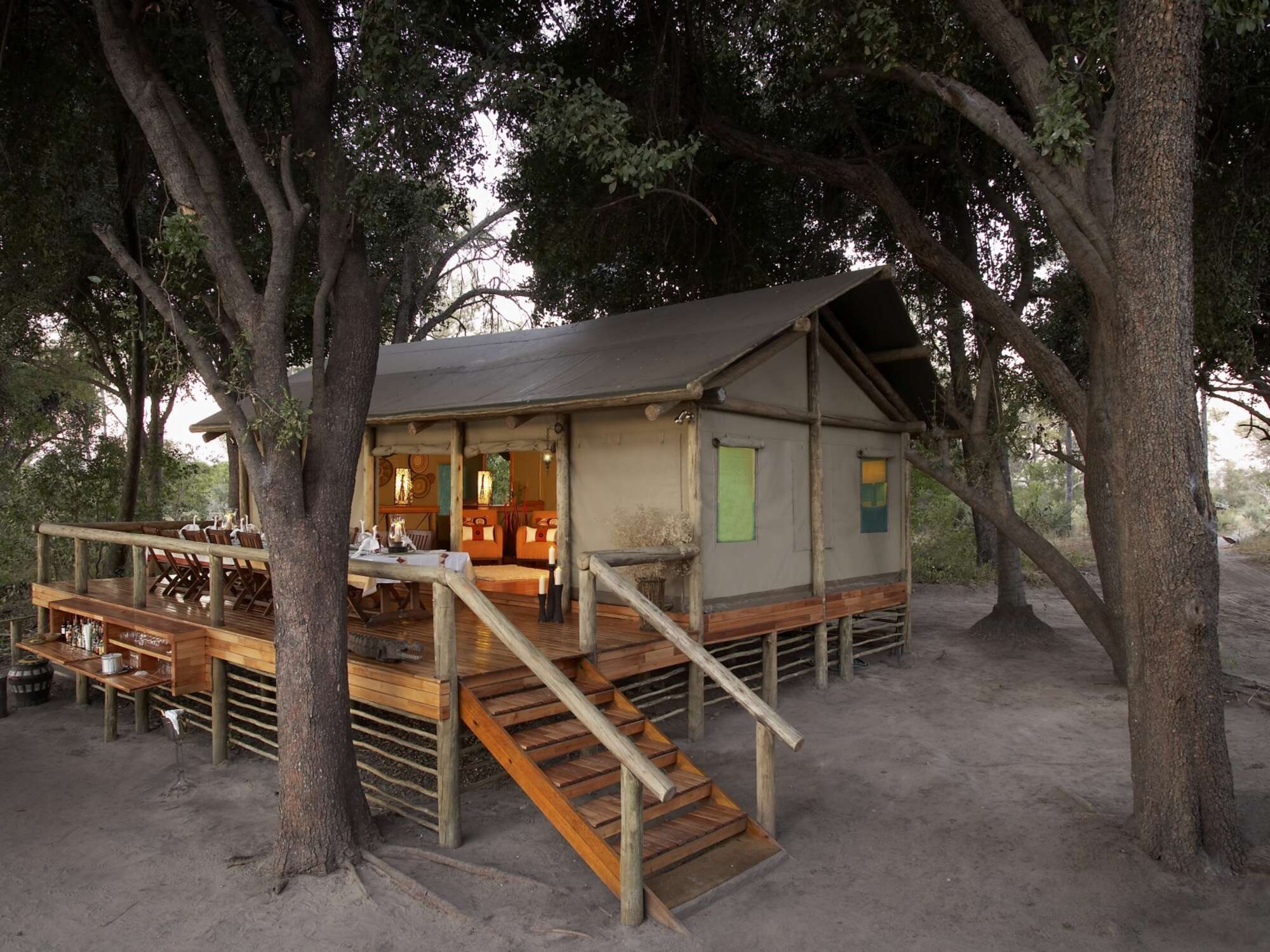
Seba Camp
Seba Camp is a luxury camp in a lovely location that offers the full range of water and land safari activities, depending on the time of year. This camp is particularly suitable for families.
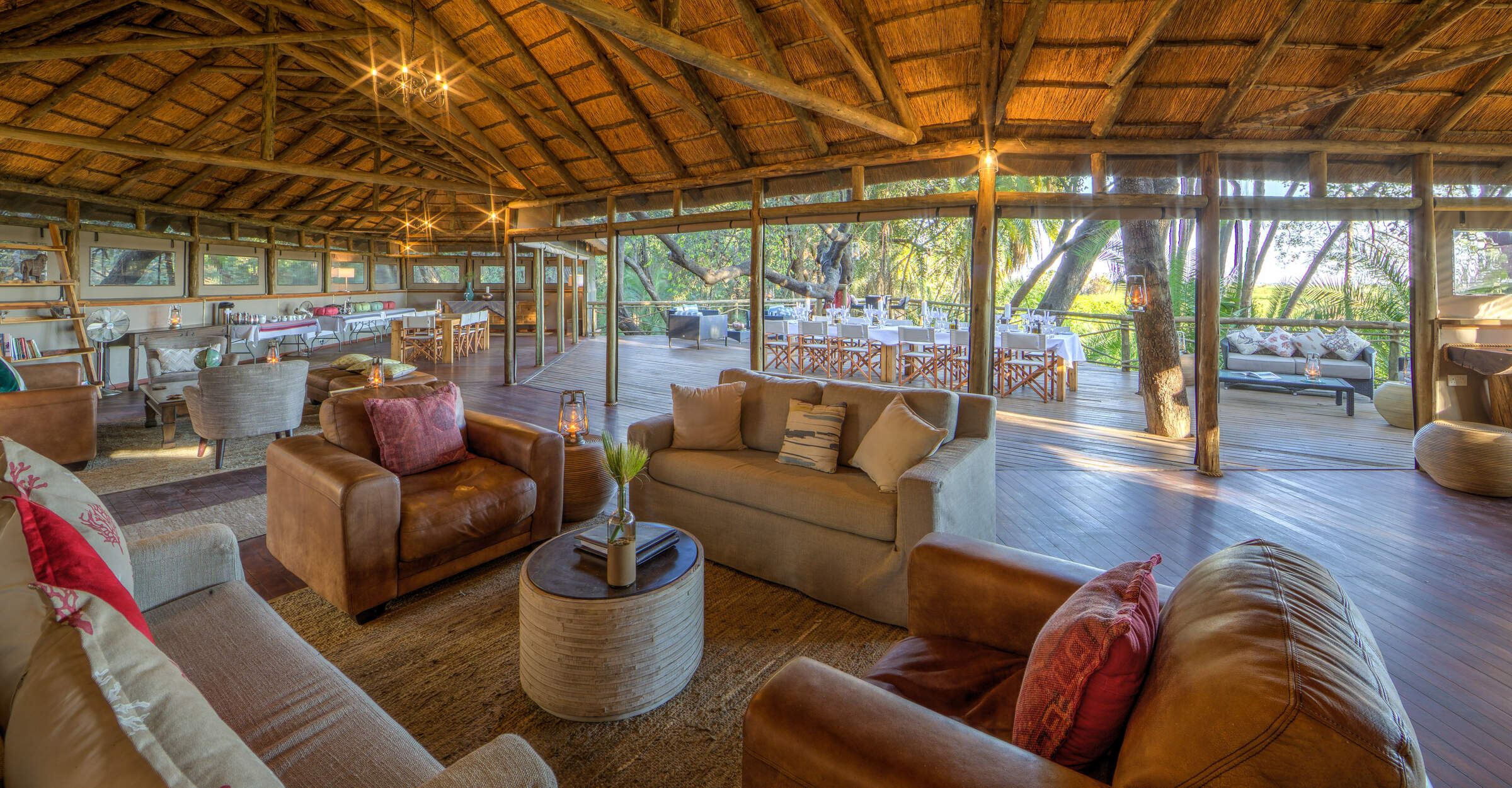
Setari Camp
Setari Camp stands on an island dotted with palm trees, close to the base of the Okavango’s ‘Panhandle"
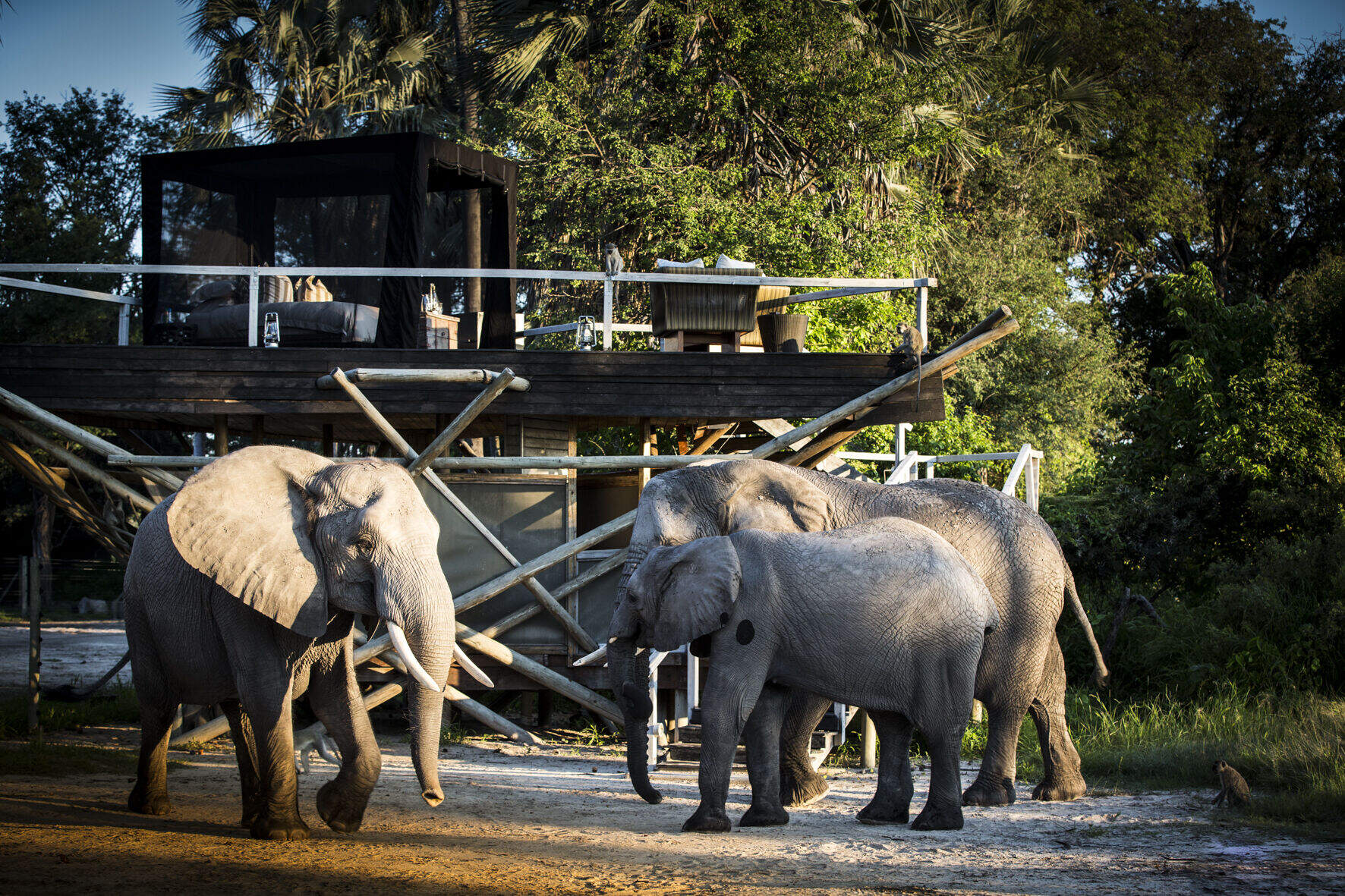
Abu Camp
Abu Camp is an exclusive safari camp on the western side of the Botswana's Okavango Delta - offering superb elephant-back safaris and opportunities to walk with them too.
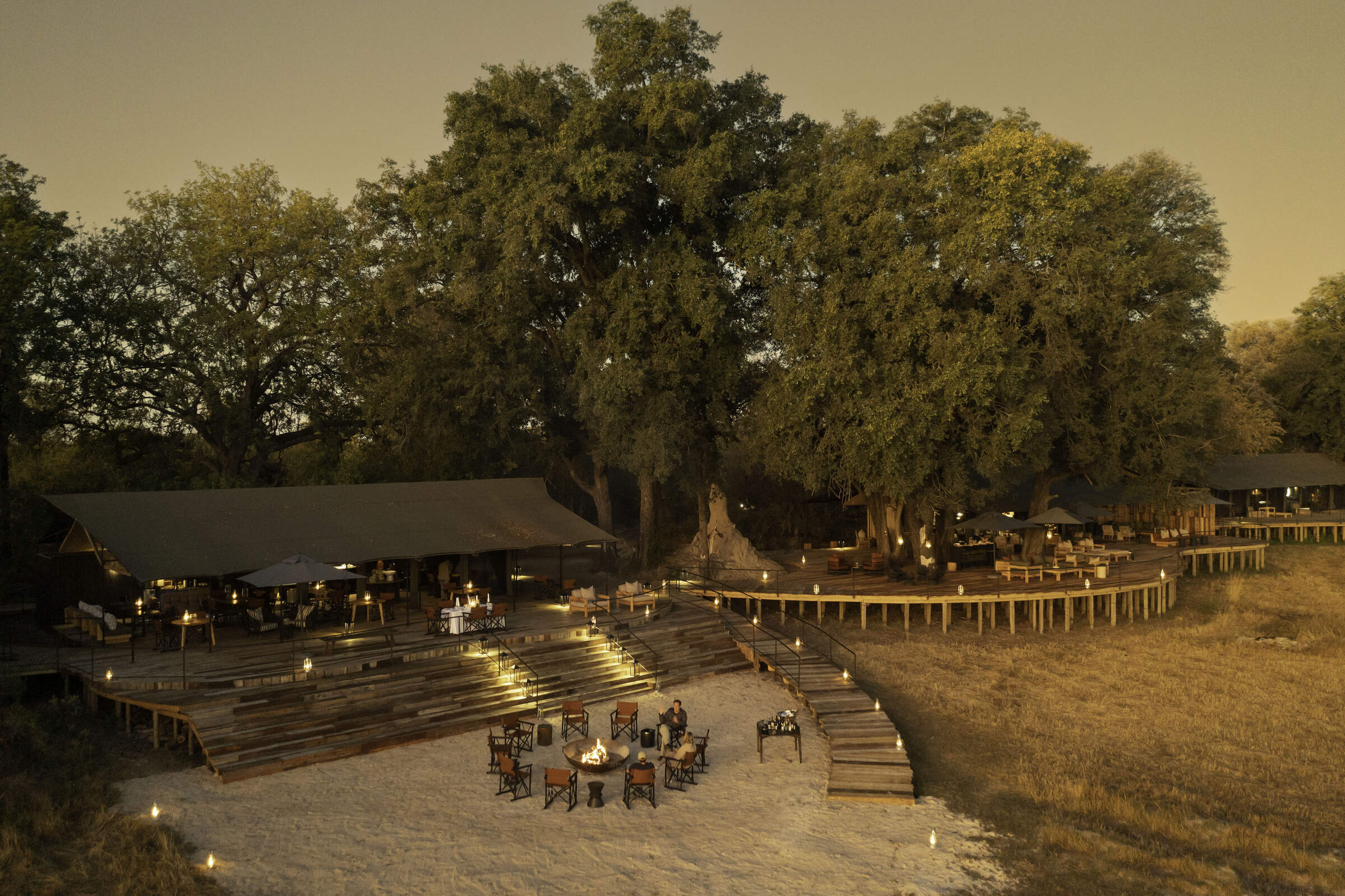
Kiri Camp
Kiri Camp is the latest Okavango offering from the excellent team behind Machaba. In an exciting new location in the heart of the Delta we cannot wait to visit this new camp.
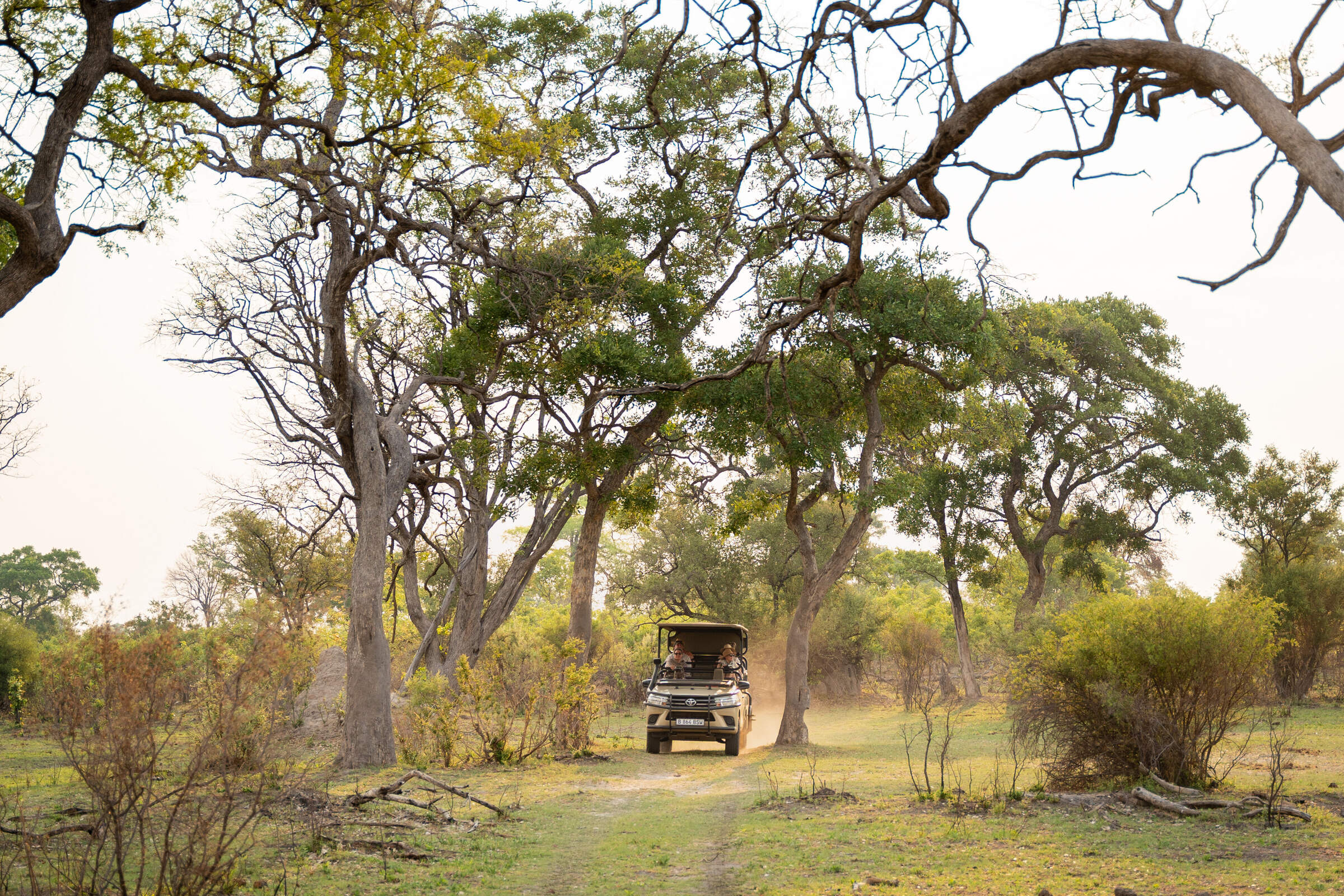
Karangoma
New for 2024, Karangoma is a classic, tented camp offering walking, canoeing and game drives, in partnership with the local Bukakwe San clan.
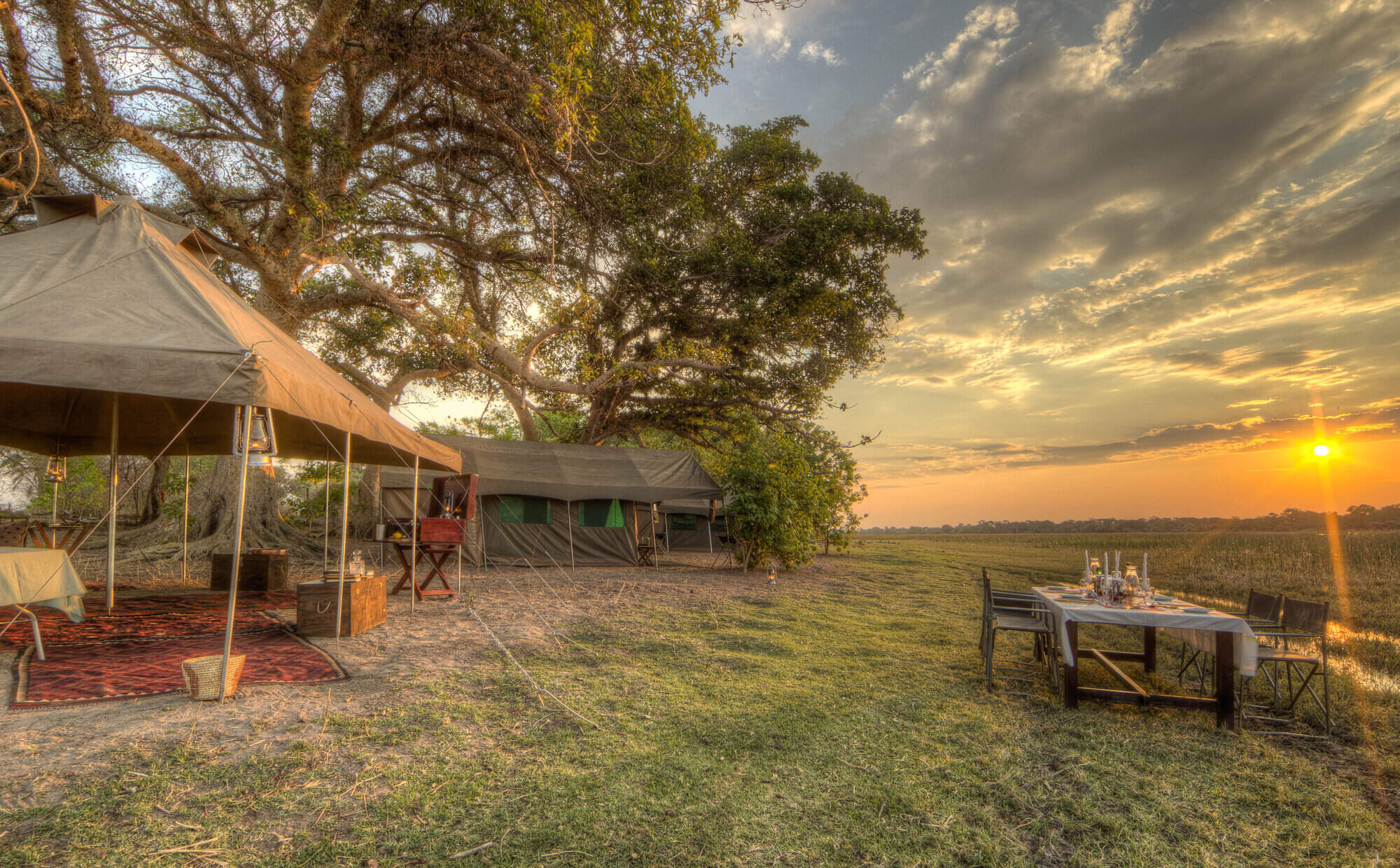
Okavango Walking Safari
The Okavango Delta Walking Safari camps in a secluded Okavango Delta Reserve where there are few roads; the ideal location for a walking trail led by an expert guide.
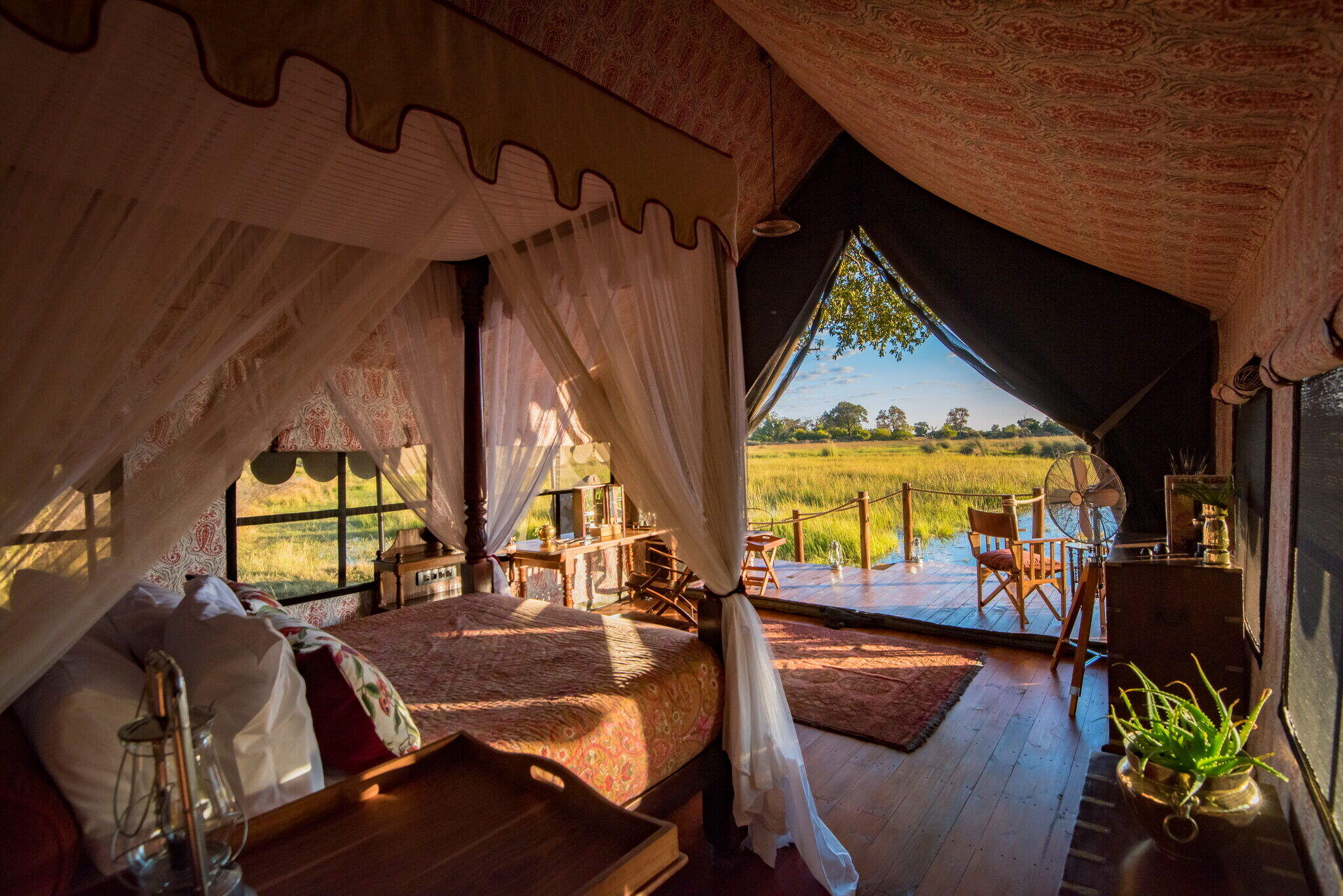
Duke’s Camp
On a remote island within a large concession, the romantic Duke's Camp and smaller Duke’s East are nestled among mature trees overlooking wildlife-rich plains and waterways of the Okavango.
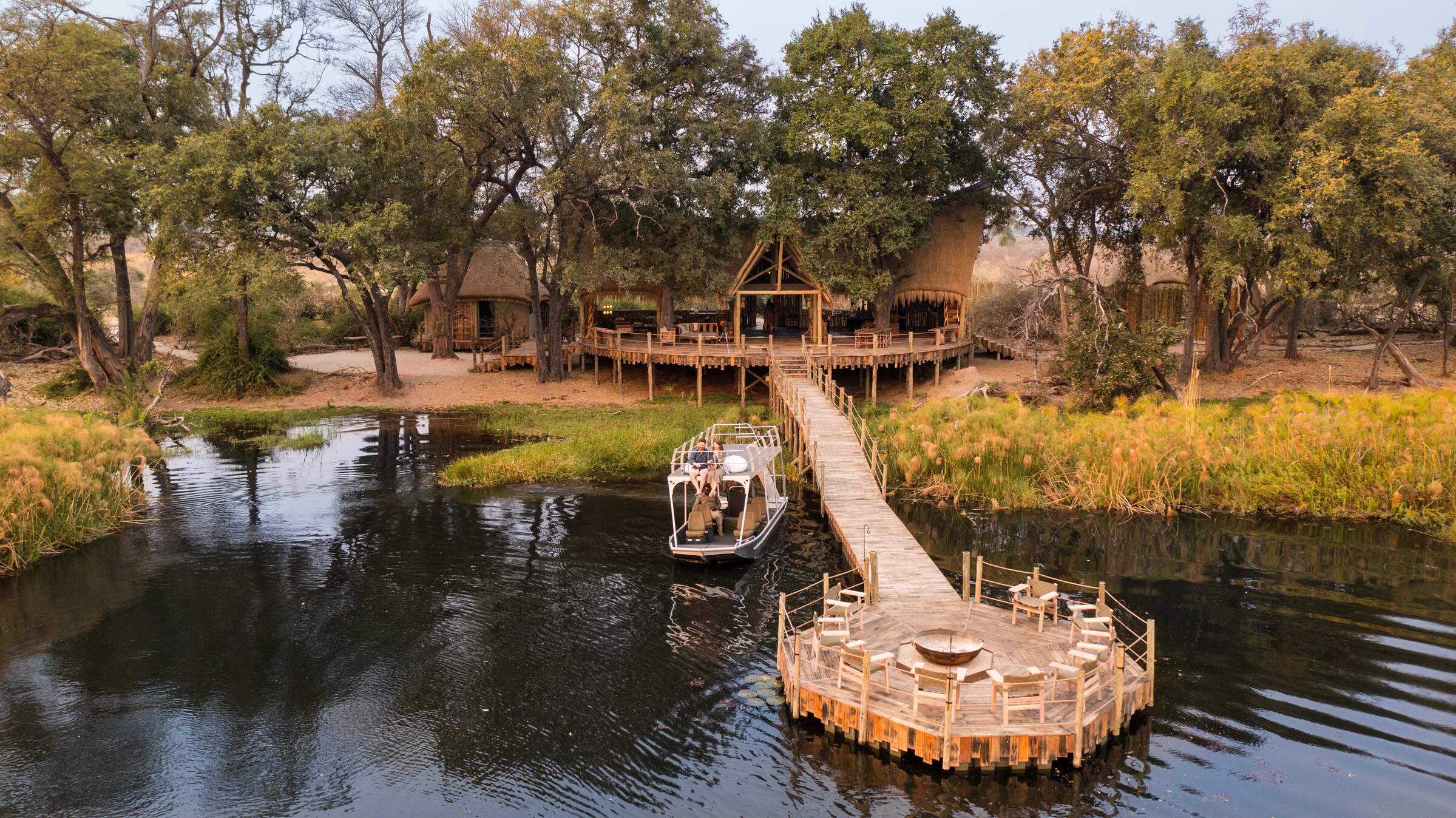
Sitatunga Island Camp
Tucked away in a pristine corner of the Okavango Delta, the exclusive Sitatunga Private Island is a water-based camp offering boating, mokoro trips and fishing.
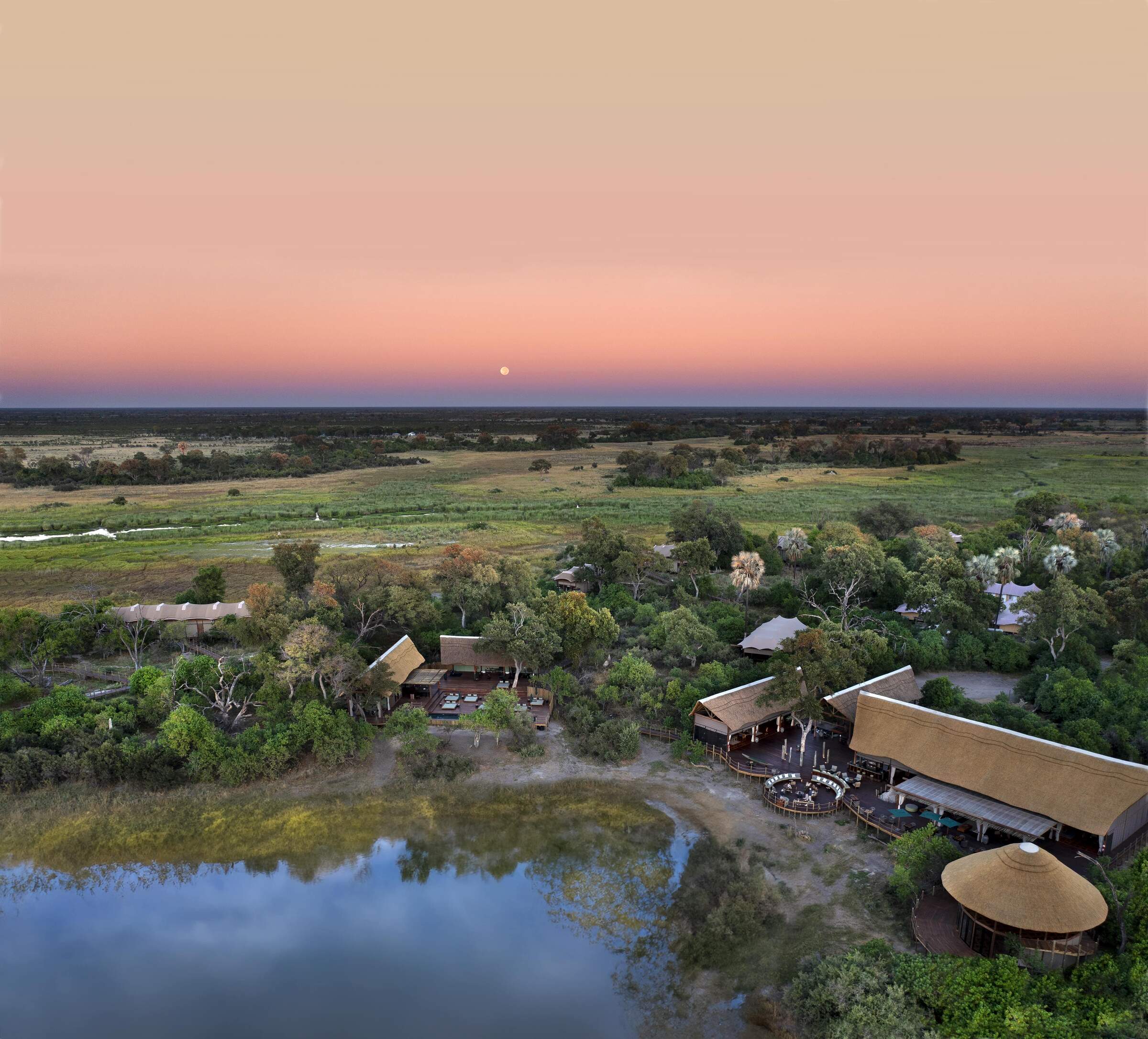
Atzaro Okavango
With a high level of tasteful luxury promised at Atzaro, we think it will be best suited to travellers seeking a touch of pampering alongside their safari.
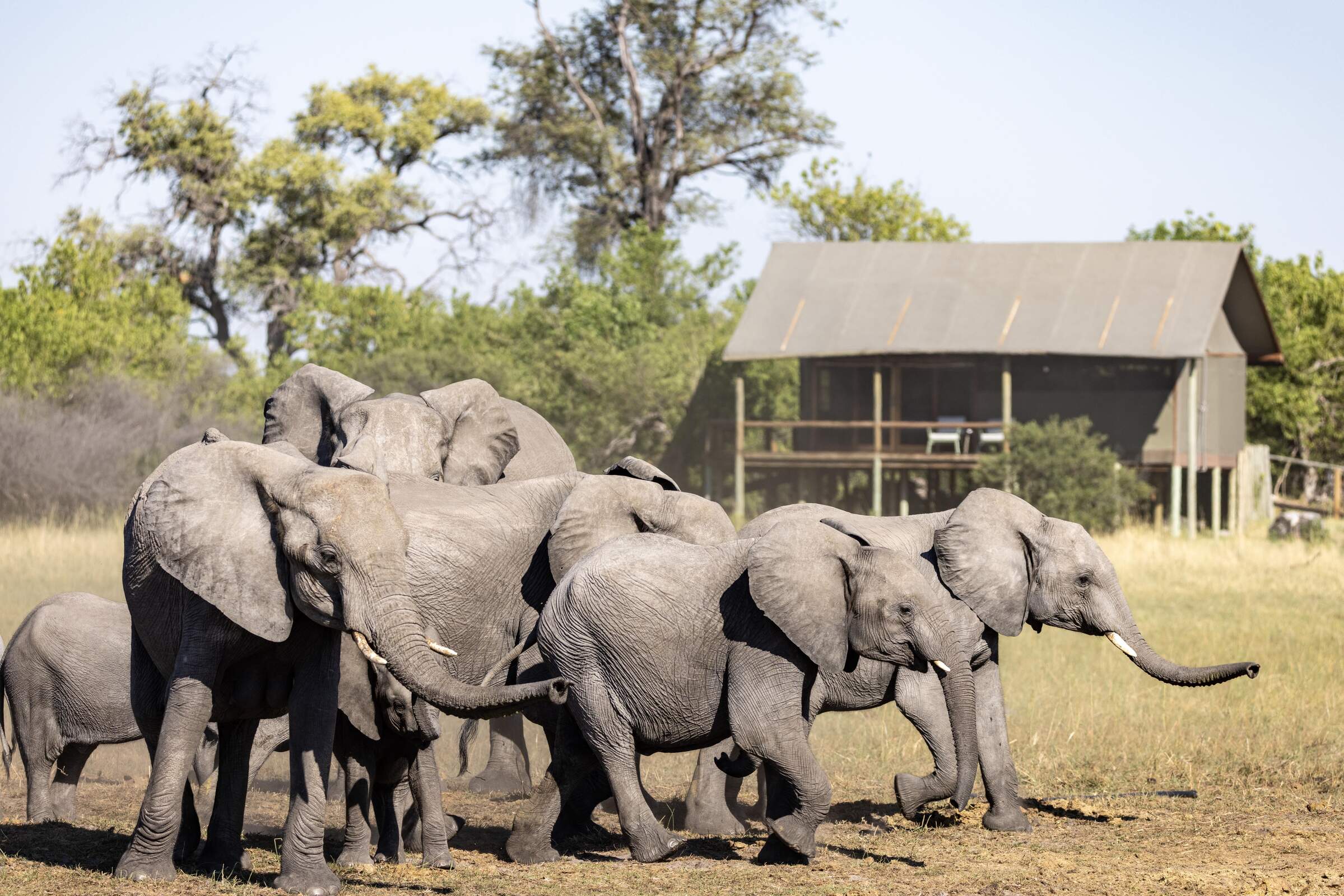
Mokolwane
Deep in the heart of the Okavango, the simple Mokolwane focuses on wildlife viewing in a large, untouched area.
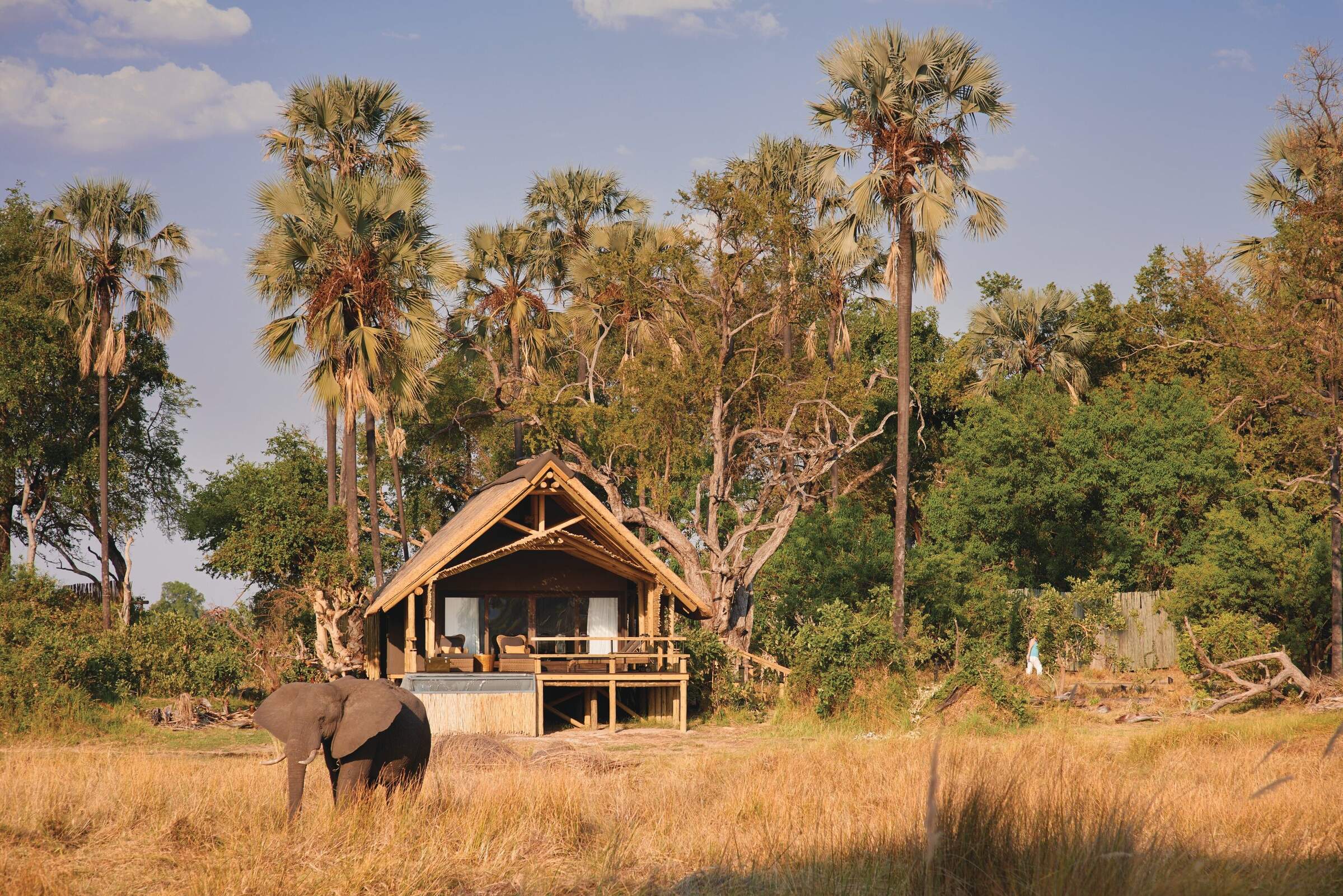
Eagle Island Lodge
Eagle Island Lodge is a luxurious camp with international-style facilities including air conditioning and intercom in each room; offering water based activities in the Okavango Delta.
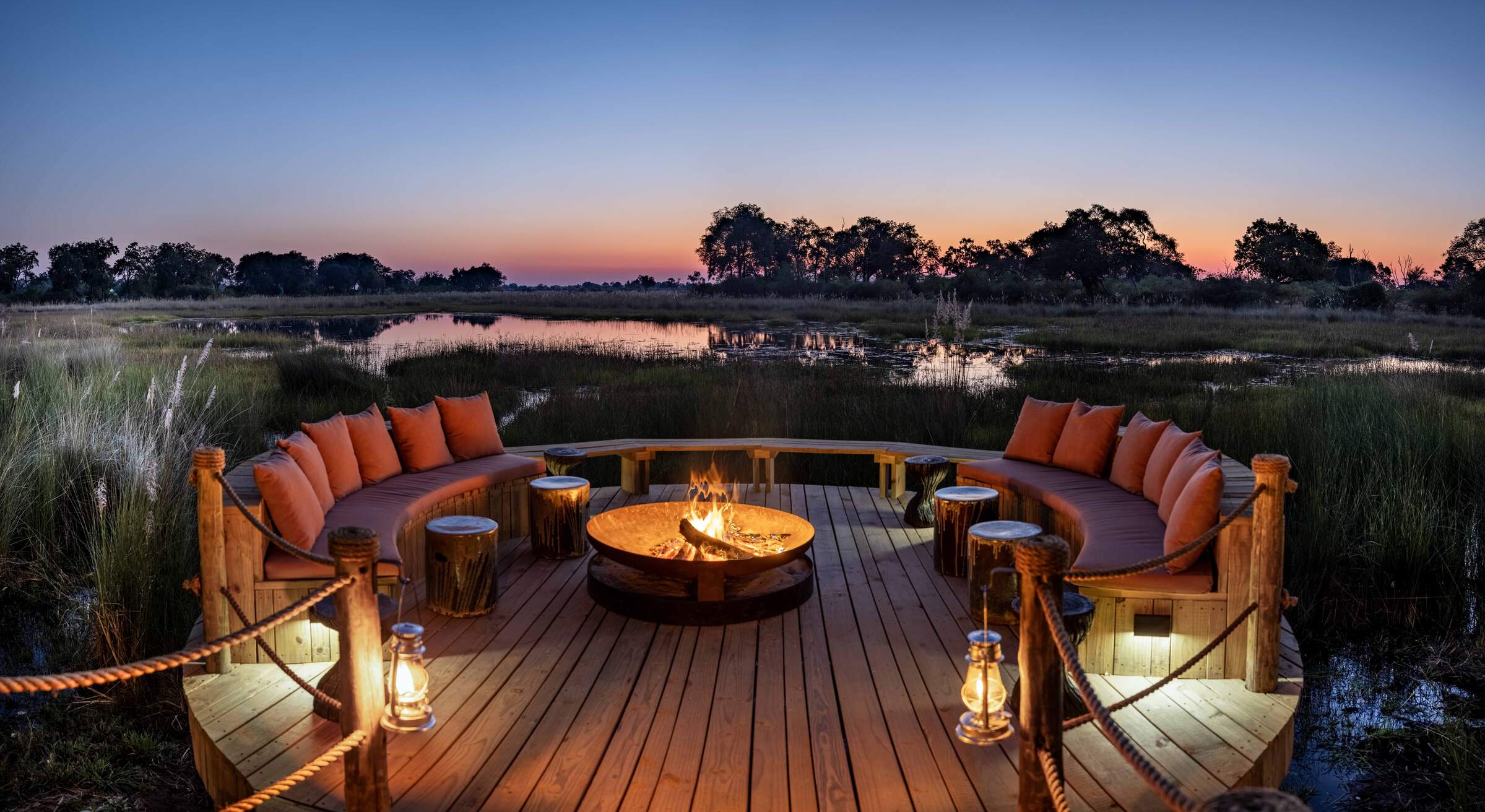
North Island Okavango
Deep in quintessentially “Okavango” territory, between deep-water and dry-land habitats, North Island focuses on a luxury safari experience with very good wildlife viewing opportunities.
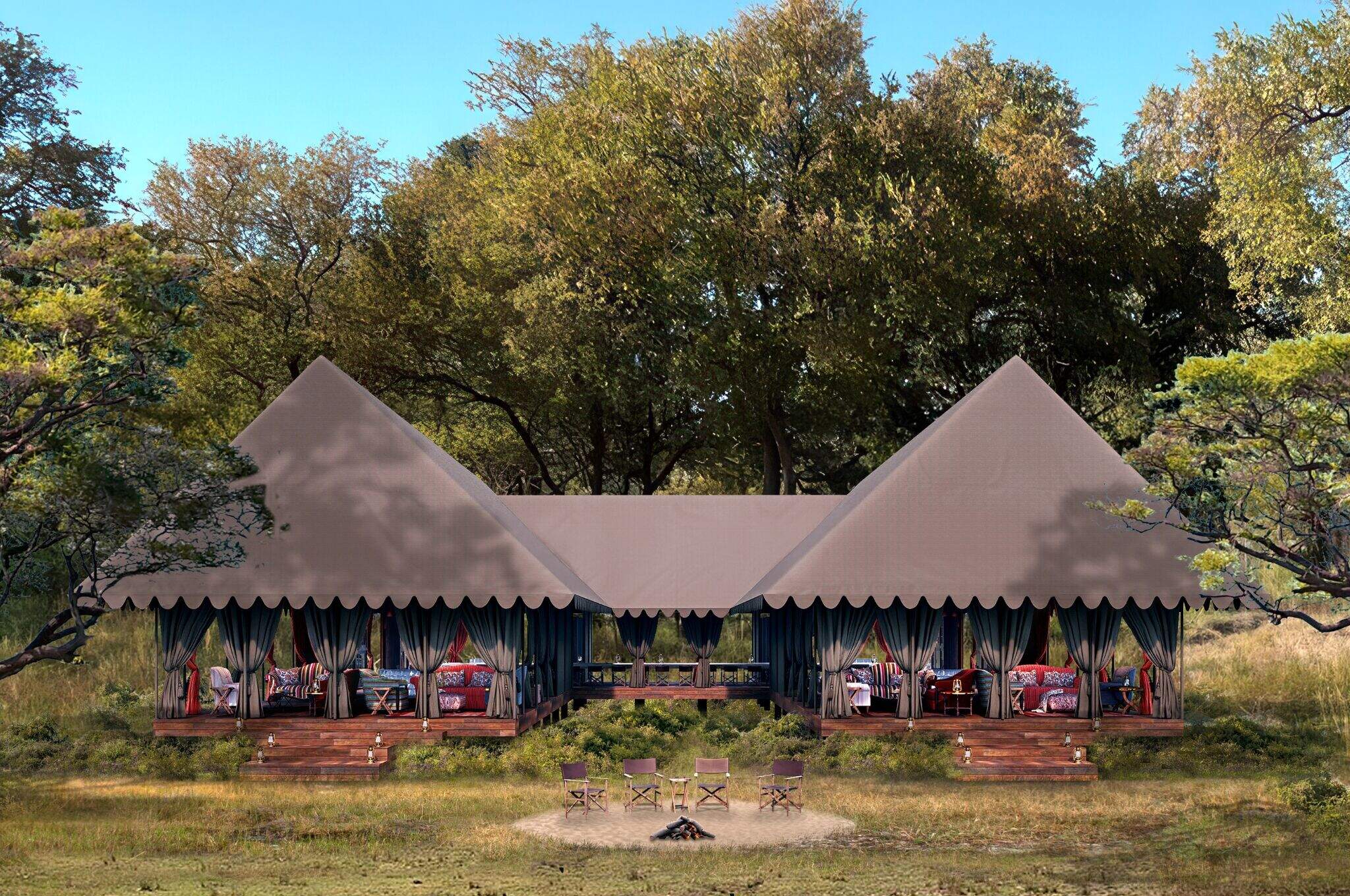
Mbamba
Deep within the northern Okavango, the classically styled Mbamba is set to open in a wildlife-rich private concession in April 2025.
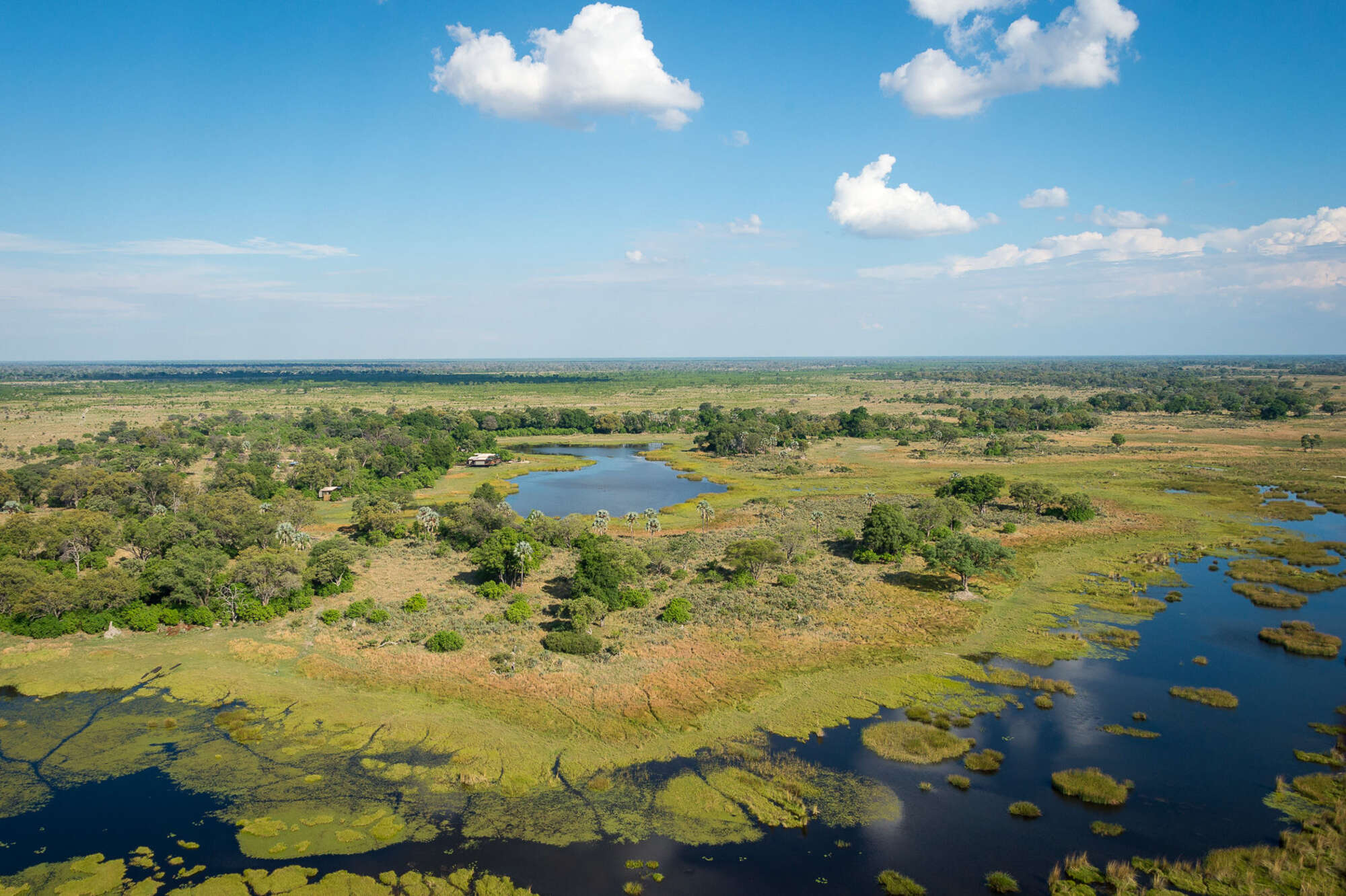
Qorokwe Camp
Luxurious and contemporary, the relatively new Qorokwe Camp is a gem in the Okavango Delta, offering land- and occasionally water-based activities in a prime wildlife area.
When to go to Okavango Delta Safari Reserves
Our month by month guide: What it's like to visit Okavango Explorers in Okavango Delta Safari Reserves
Jan
Feb
Mar
Apr
May
Jun
Jul
Aug
Sep
Oct
Nov
Dec
Okavango Delta Safari Reserves in January
January marks the peak of the rainy season in the Okavango Delta. Evening rains are often short but heavy, accompanied by occasional dramatic thunderstorms. Temperatures remain high, although cooler than the preceding months of October to December. Wildlife can be harder to spot as animals spread out across the lush floodplains.
This month is a birdwatcher’s paradise, with migratory species in abundance over flooded areas. Rising water levels in parts of the Delta make mokoro safaris possible, offering serene and immersive experiences. The vibrant greenery and dramatic skies provide stunning opportunities for photography. With relatively low rates and fewer visitors, January is ideal for those seeking a quieter, budget-conscious Botswana safari.
- Warm temperatures with frequent evening showers
- Birdlife at its most spectacular in the Delta
- Wildlife dispersed, but insects and smaller creatures abound
- Excellent availability in Delta lodges and camps
Our view
A good time to visit, with pros & cons
Weather in January
Okavango Delta Safari Reserves in February
February mirrors January’s weather patterns, with heavy rains and slightly cooler temperatures. The Delta’s landscape is at its greenest and teeming with life. Smaller animals, insects, and vibrant birdlife dominate, as many species raise their young. The rains create temporary pools and waterholes, further dispersing larger game, while thick vegetation and tall grass adds to the challenge of spotting big wildlife.
However, Moremi Game Reserve and select areas of the Delta still offer excellent game viewing opportunities. Rising water levels enhance water activities, with boat safaris providing unique access to the Delta’s watery beauty. February is particularly rewarding for photographers seeking lush landscapes and dramatic skies and birdwatchers, with many migratory species present.
- Warm with occasional thunderstorms
- Many animals with young in the Delta
- Big game dispersed throughout wetlands
- Big game dispersed, but viewing improves in drier areas
- Lower visitor numbers and great lodge availability
Our view
This is not a great time to visit
Weather in February
Okavango Delta Safari Reserves in March
March marks the gradual end of the main rainy season in the Okavango Delta. Sunny days become more frequent, with occasional afternoon thunderstorms. The Delta remains lush and vibrant, with wildlife activity increasing as animals finish raising their young and begin congregating around permanent water sources.
Rising water levels make boat safaris a highlight, offering intimate access to the Delta’s waterways. Birdwatching is excellent, with both resident and migratory species thriving. With fewer visitors, March offers a quieter, more personal safari experience.
- Rains taper off but temperatures remain warm
- Occasional small thunderstorms in Delta
- Wildlife begins congregating around water sources
- Ideal conditions for boat safaris
- Few tourists and attractive rates at camps
Our view
A good time to visit, with pros & cons
Weather in March
Okavango Delta Safari Reserves in April
April brings clearer skies to the Okavango Delta, with the landscape remaining green and lush. Night temperatures begin to drop, especially in the southern Delta. The annual floods from Angola start to flow through the northern Delta, filling channels and lagoons, creating ideal conditions for water-based activities like boat safaris.
Wildlife viewing improves as vegetation thins and predator activity increases with cooler evenings. Moremi Game Reserve and the private concessions offer rewarding game drives, and walking safaris on the larger islands, such as Chief’s Island, become popular during this time. Birdwatching remains excellent, with many migratory species still present. April’s combination of pleasant weather, wildlife activity, and relatively low rates makes it a rewarding time to visit.
- Cooler evenings and occasional light showers
- Floodwaters begin to fill Delta channels
- Predator-prey interactions increase
- Ideal for walking safaris and boat trips
- Popular shoulder season, rates fairly low
Our view
A good time to visit, with pros & cons
Weather in April
Okavango Delta Safari Reserves in May
May is a popular time to visit the Okavango Delta, marking the last month of the shoulder season. The annual floods continue to spread through the Delta, transforming the landscape. Cooler mornings and evenings encourage predator activity, while thinning vegetation makes wildlife spotting easier, though some tall grasses may still obstruct views.
May offers excellent photographic opportunities with clear, crisp air. It's a favourite time for many visitors, combining good wildlife sightings with pleasant weather. Camp bookings throughout the Delta fill up quickly during this period.
This is a perfect month for scenic flights, offering breathtaking views of the advancing floodwaters. Mokoro trips through the Delta’s tranquil waterways provide a unique perspective on the environment. Camps start to fill quickly as the Delta’s combination of pleasant weather and excellent wildlife sightings makes it a favourite among safari-goers.
- Cool mornings and evenings with little rain
- Improved game viewing as Delta grasses thin
- Predator activity increasing in drier areas
- Scenic flights and water activities highly recommended
- Last month of shoulder season for camps
Our view
A very good time to visit
Weather in May
Okavango Delta Safari Reserves in June
June signals the start of the dry season in the Okavango Delta. Days are warm, with clear skies, while mornings and evenings can be cold, occasionally reaching freezing temperatures. The annual floods reach their peak, creating spectacular conditions for water-based activities like boat safaris along the Khwai River and in private concessions.
Wildlife concentrates around permanent water sources as surface water dries up, improving game viewing. The thinning vegetation and crisp, clear air make June perfect for photography. High demand for camp bookings reflects its popularity, as this month combines great game viewing and pleasant weather.
- Warm days, cold mornings and nights
- Peak floodwaters make boat safaris unforgettable
- Wildlife congregates around permanent water sources
- Excellent conditions for photography
- High demand for camps and lodges
Our view
Fantastic: the very best time to visit
Weather in June
Okavango Delta Safari Reserves in July
July offers cool mornings and evenings with warm, sunny days, making it ideal for wildlife viewing. The floodwaters remain at their peak, providing excellent opportunities for boat safaris. Vegetation continues to thin, enhancing visibility on game drives in Moremi Game Reserve and the Okavango’s private reserves.
Large herds of elephants and buffalo are common sights as they gather near water sources. Predator sightings, including lions and leopards, increase as prey concentrates. Birdwatching is rewarding, and the crisp winter air creates stunning photographic conditions. July is one of the most popular months to visit, with many lodges fully booked well in advance.
- Comfortable days, cold mornings and nights
- Excellent game viewing and predator activity
- Moremi and Khwai areas become busy
- Private concessions offer exclusivity
- High season rates; advance bookings essential
Our view
Fantastic: the very best time to visit
Weather in July
Okavango Delta Safari Reserves in August
August remains a highly sought-after month for visiting the Okavango Delta. Nights are cool, while daytime temperatures rise gradually. Wildlife viewing is exceptional as animals concentrate near water sources, while the Delta’s floods are typically at their peak, offering picturesque settings for excellent boat safaris.
Walking safaris and game drives in areas like Moremi Game Reserve and Chief’s Island are particularly rewarding. Large herds of elephants and buffalo are common sights, and predator activity is high, with increased chances of seeing lions, leopards, and wild dogs hunting. The clear skies and lack of humidity create excellent stargazing conditions. With many travellers visiting during European and North American holidays, lodge availability can be challenging.
- Dry, warm days and cool nights in the Delta
- Fantastic wildlife viewing near water sources
- Excellent opportunities for game drives and boat safaris
- Cloudless skies, spectacular stargazing
- High demand for accommodation – book early
Our view
Fantastic: the very best time to visit
Weather in August
Okavango Delta Safari Reserves in September
September is a favourite for many safari-goers in the Okavango Delta. Daytime temperatures rise, but nights remain cool. The landscape transforms as greenery fades, and hazy conditions create dramatic sunsets. Wildlife viewing peaks as animals cluster around permanent water sources, with especially large numbers of elephants and buffalo. This concentration of prey attracts predators, increasing chances of witnessing exciting hunts.
The return of migratory birds enhances birdwatching. Water levels begin to recede, but boat cruises are still possible. Dusty conditions may challenge photographers, but the stunning landscapes and wildlife action more than make up for it.
- Warm days, cool nights in the Delta
- Prime month for Okavango wildlife viewing
- Migratory birds return, enriching birdwatching
- Spectacular sunsets and dramatic scenery
- High season rates, many Delta camps full
Our view
Fantastic: the very best time to visit
Weather in September
Okavango Delta Safari Reserves in October
October is the hottest and driest month in the Okavango Delta. Wildlife concentrates around the last remaining water sources, creating some of the most dramatic game viewing opportunities of the year. Predator-prey interactions are frequent and visibility is excellent, making for thrilling safaris.
Walking safaris are particularly rewarding, especially on smaller islands, but early starts are essential to avoid the midday heat. Towards the end of the month, the first rains may bring relief and begin rejuvenating the parched landscape. Despite the heat, October offers excellent big-game viewing and dramatic photographic moments of animal interactions.
- Hot days, with late-month chances of rain
- Outstanding big-game viewing near water sources
- Water activities limited as floods recede
- Walking safaris provide unique experiences
- Final month of the peak safari season
Our view
Fantastic: the very best time to visit
Weather in October
Okavango Delta Safari Reserves in November
November marks the start of the green season in the Delta. Rising humidity and temperatures often lead to the first heavy rains; these are typically short, heavy showers in the late afternoon or night, creating spectacular scenes and bringing a flush of green to the parched landscape. Wildlife begins to disperse as waterholes refill, but game drives still offer rewarding sightings.
Water levels may be low, limiting boat activities, but November is exceptional for birdwatching, with the arrival of many migratory species. Scenic flights highlight the contrast between dry and wet areas. The first two weeks are popular for travellers seeking good game viewing at lower rates as the Delta transitions into its shoulder season.
- Hot, humid days in the Delta
- Dramatic rain showers , increasing as month progresses
- Migratory birds arrive in abundance
- Wildlife watching good, but less predictable
- Shoulder season offers mid-range rates
Our view
A good time to visit, with pros & cons
Weather in November
Okavango Delta Safari Reserves in December
December sees the rainy season in full swing across the Okavango Delta, bringing some respite from high temperatures. Game viewing becomes more challenging as wildlife disperses, but great sightings can still be had. The landscape transforms dramatically, with lush vegetation sprouting across the Delta. This period is excellent for birdwatching, with numerous migratory species present.
Water levels begin to rise, gradually improving conditions for boat safaris. The green season offers unique photographic opportunities, with dramatic skies and newborn animals. December is ideal for visitors seeking a more intimate Delta experience, with fewer tourists and lower rates at many camps and lodges. The combination of wildlife, birdlife, and scenic beauty makes it a rewarding time to visit.
- Warm temperatures
- High chance of rain in short, heavy storms
- Wildlife more dispersed across Delta
- Game viewing more challenging in wetlands
- Low-season rates and fewer visitors in most Delta camps
Our view
A good time to visit, with pros & cons
Weather in December

Looking for inspiration on where to travel next?
Visit our trip chooser to explore your options and find inspiration for your perfect African adventure
Inspire me